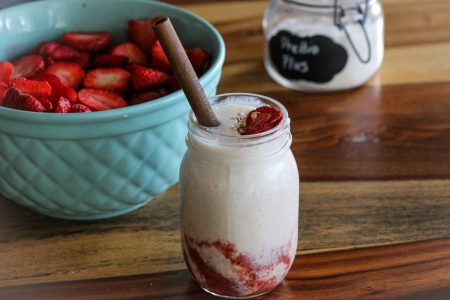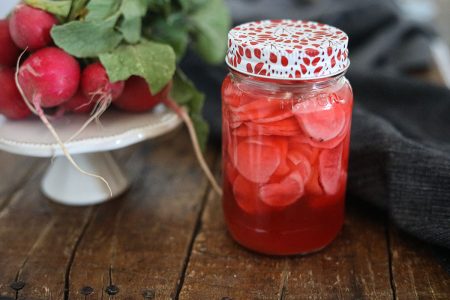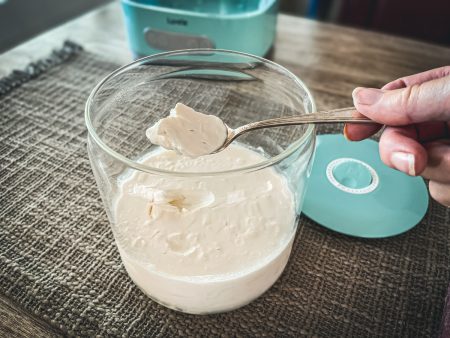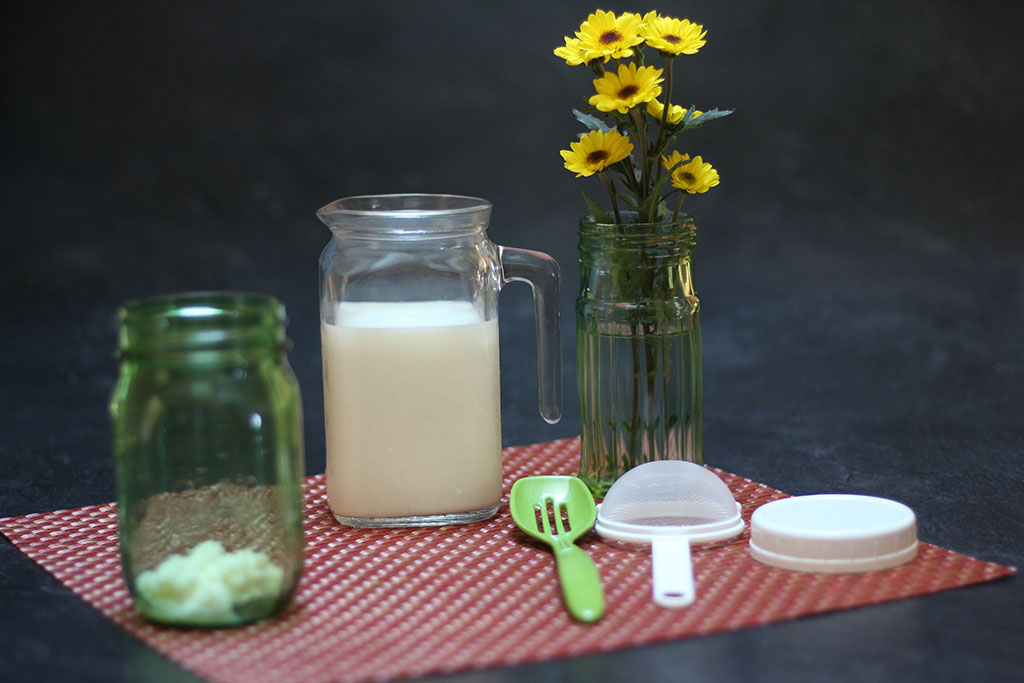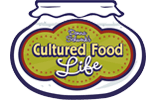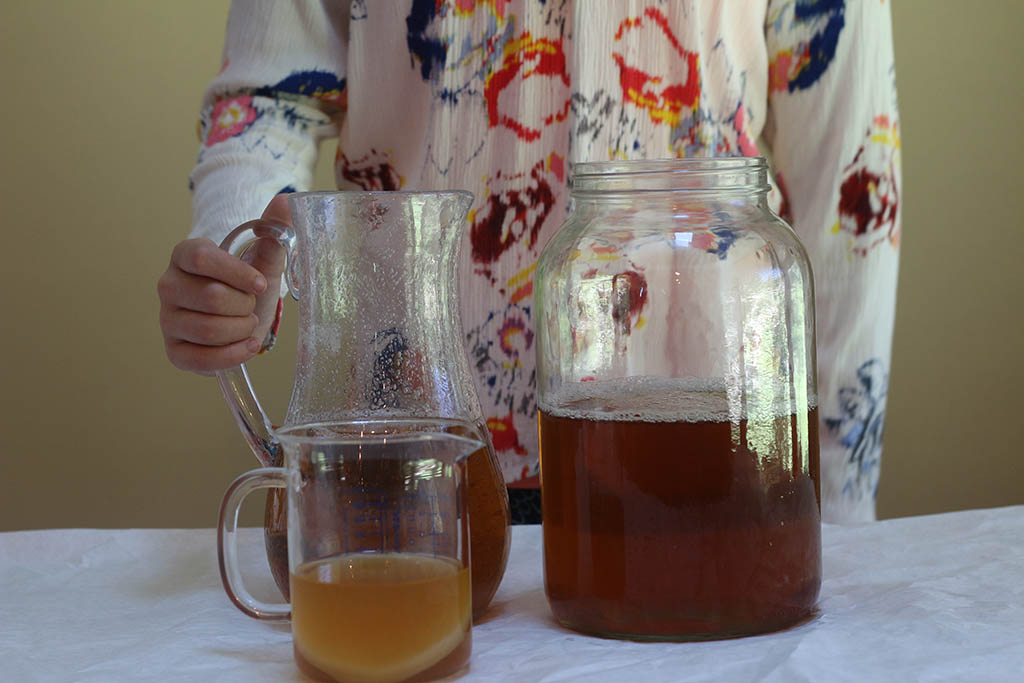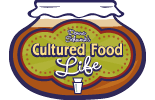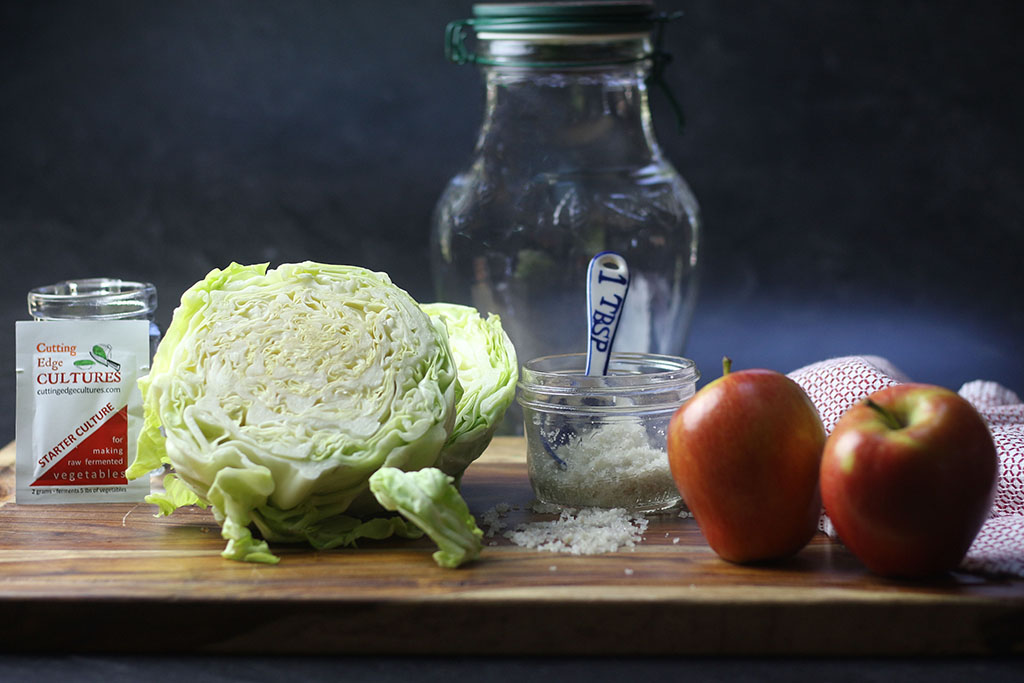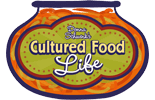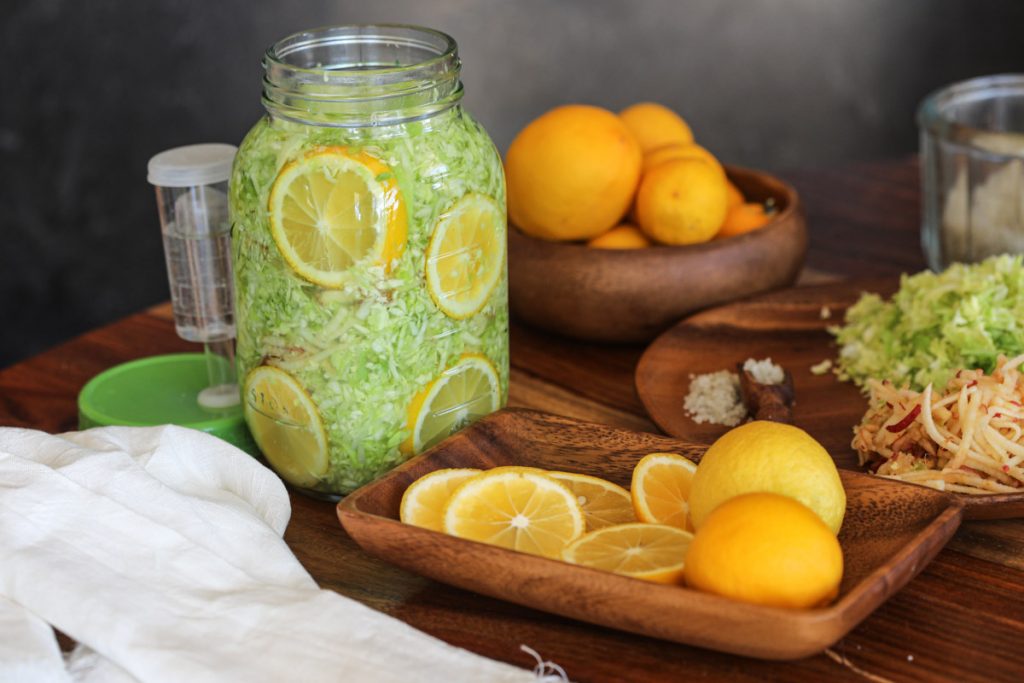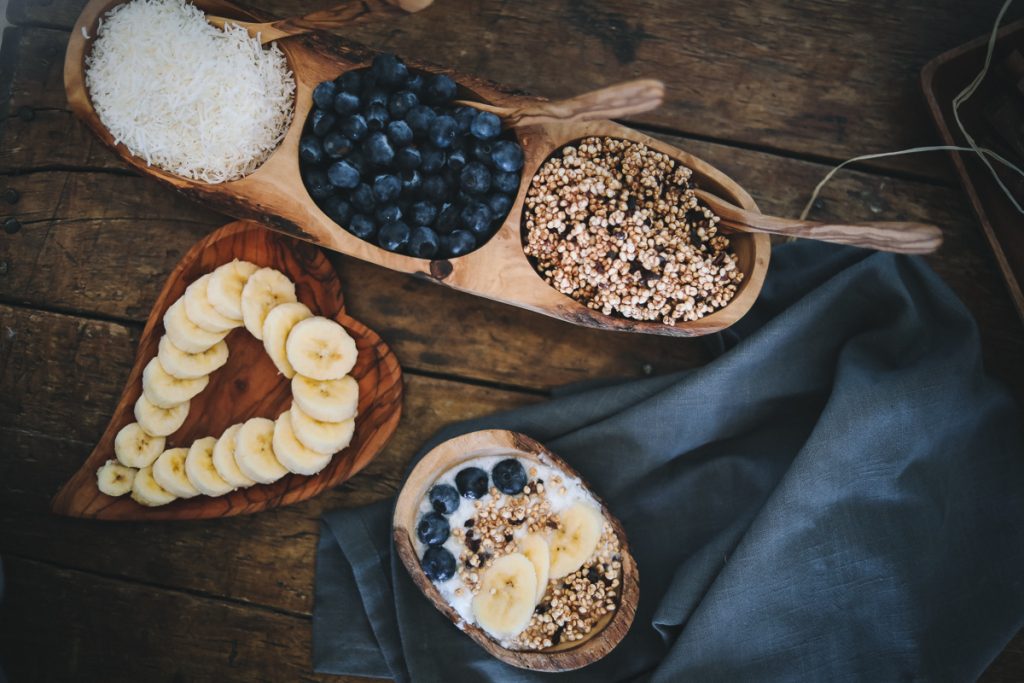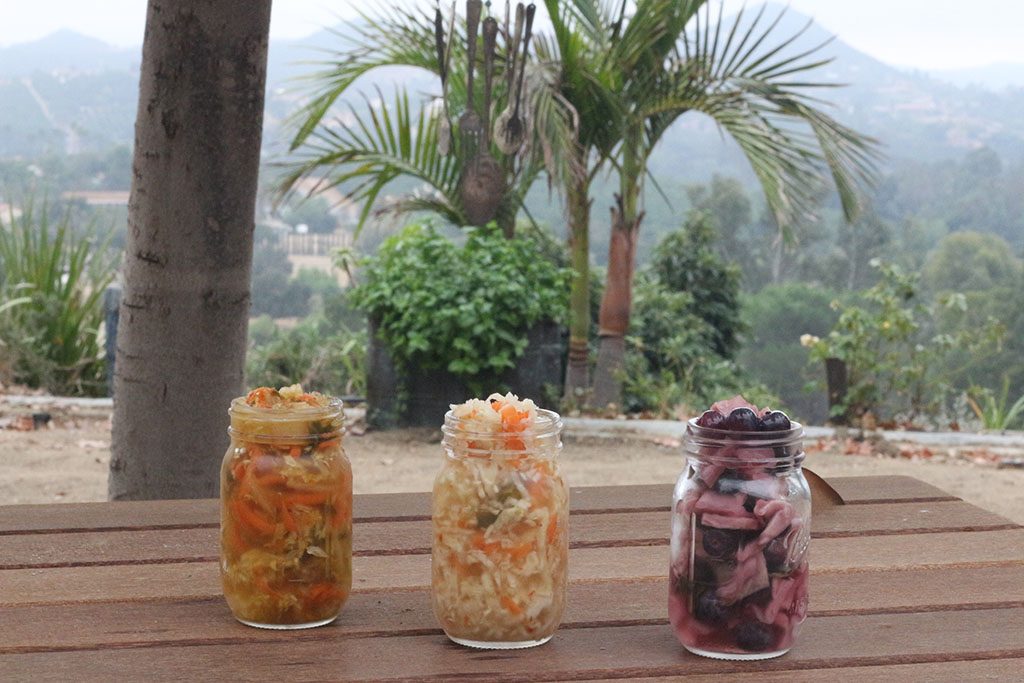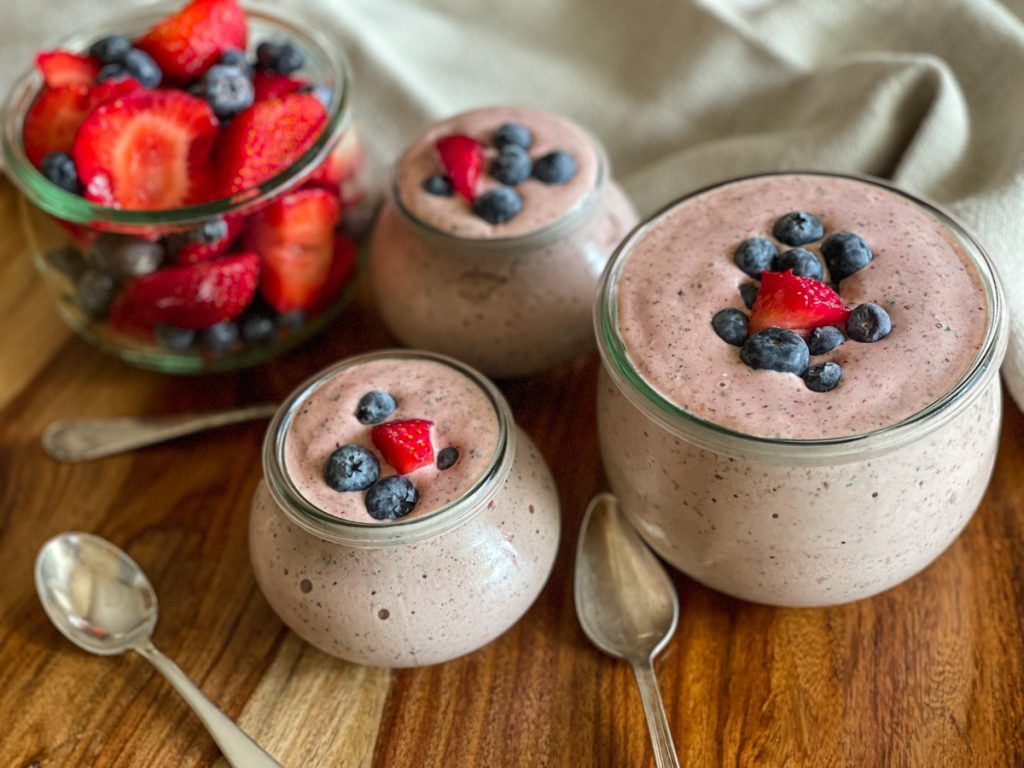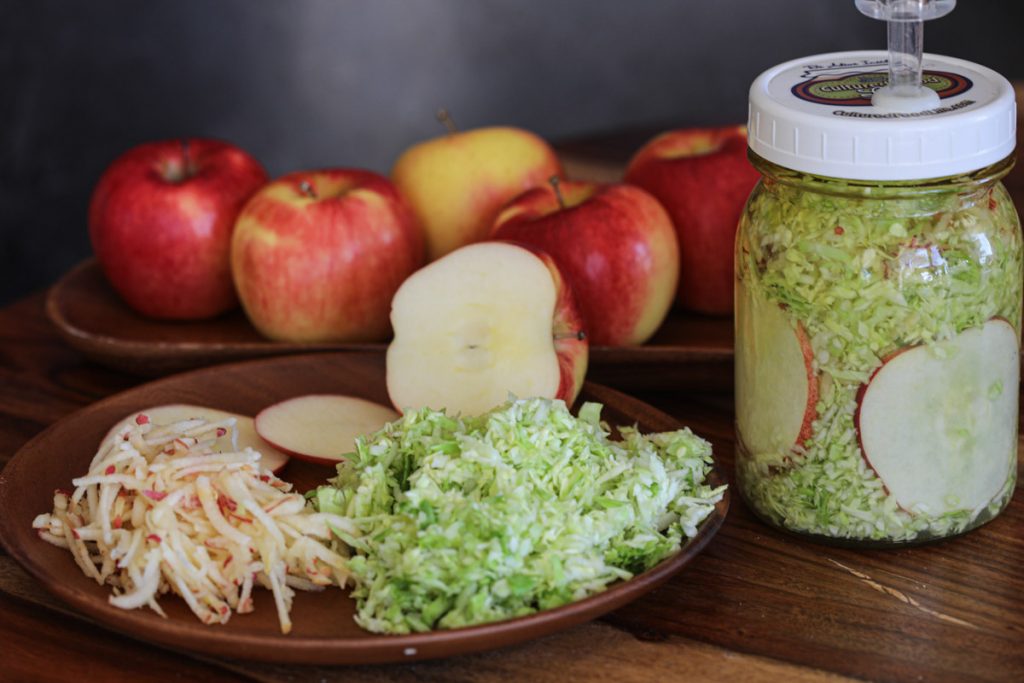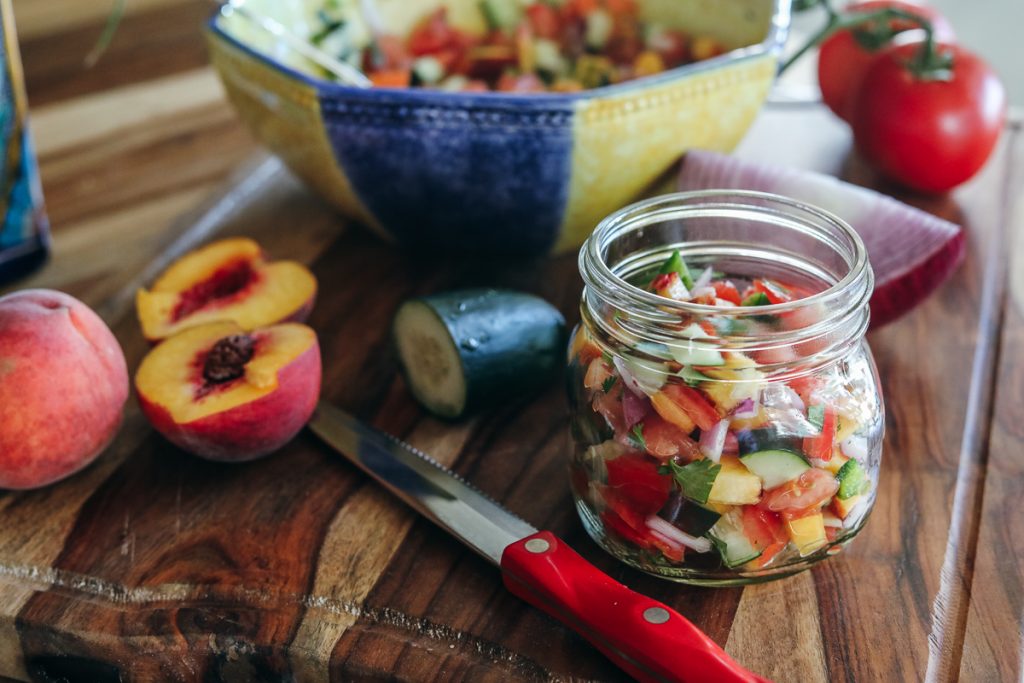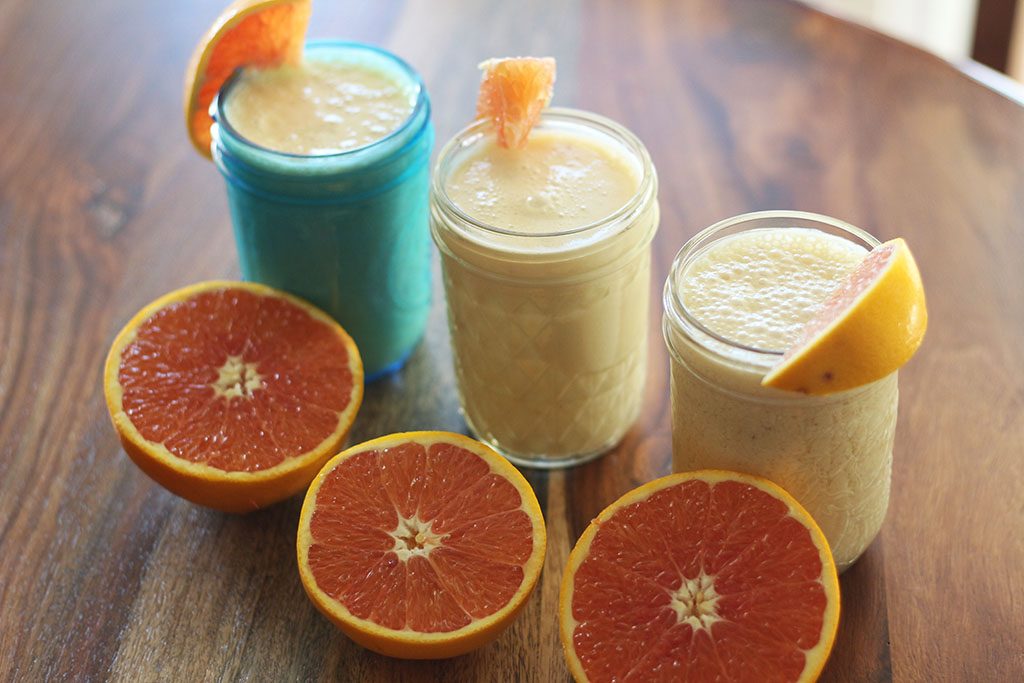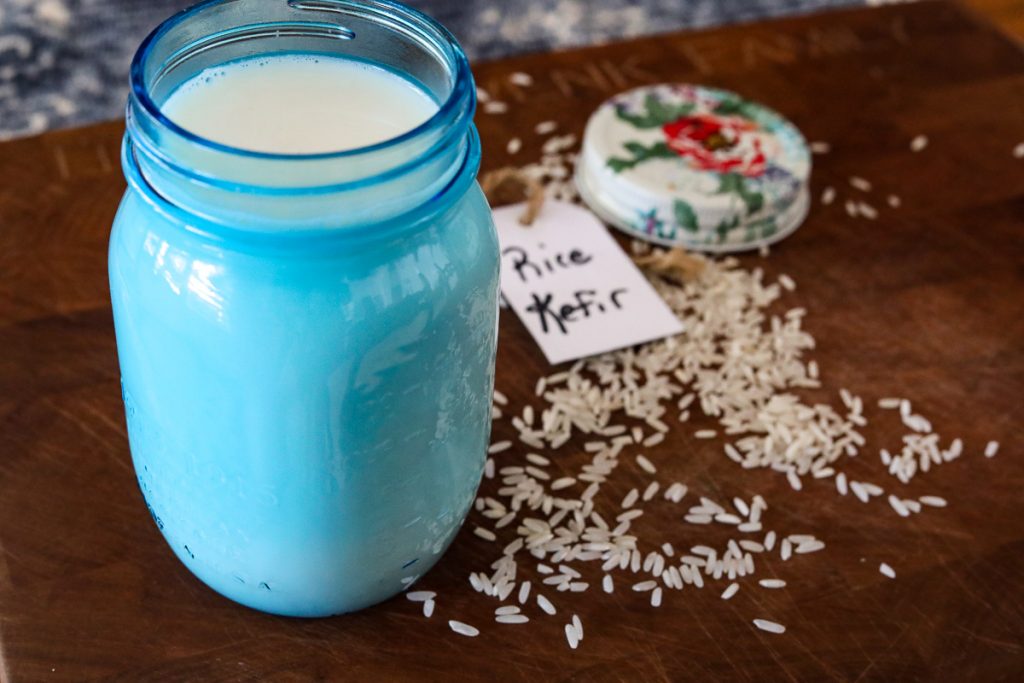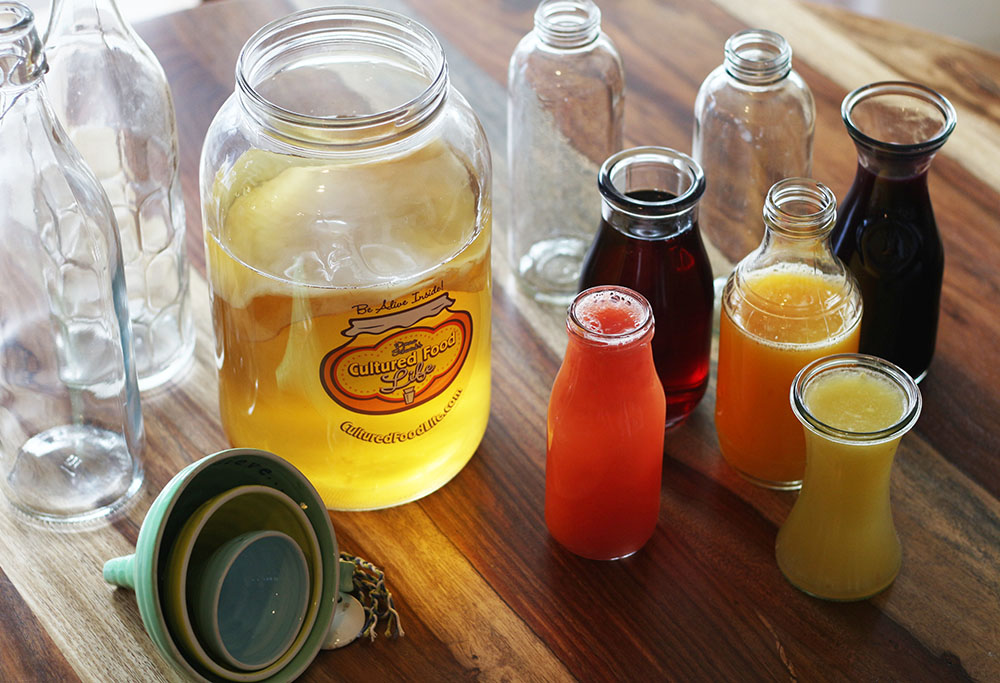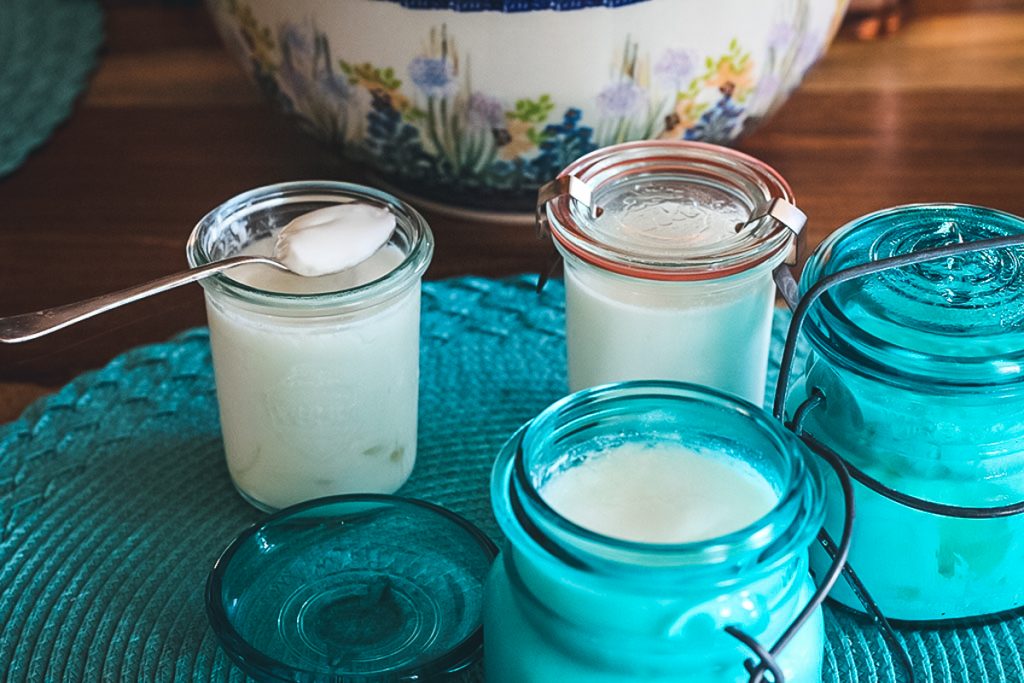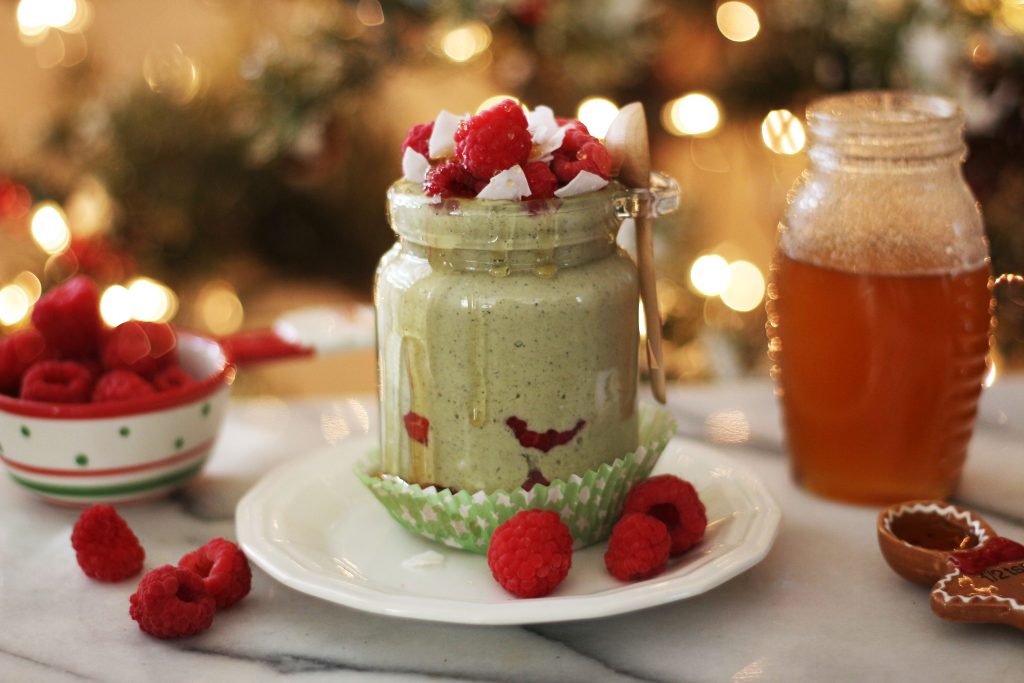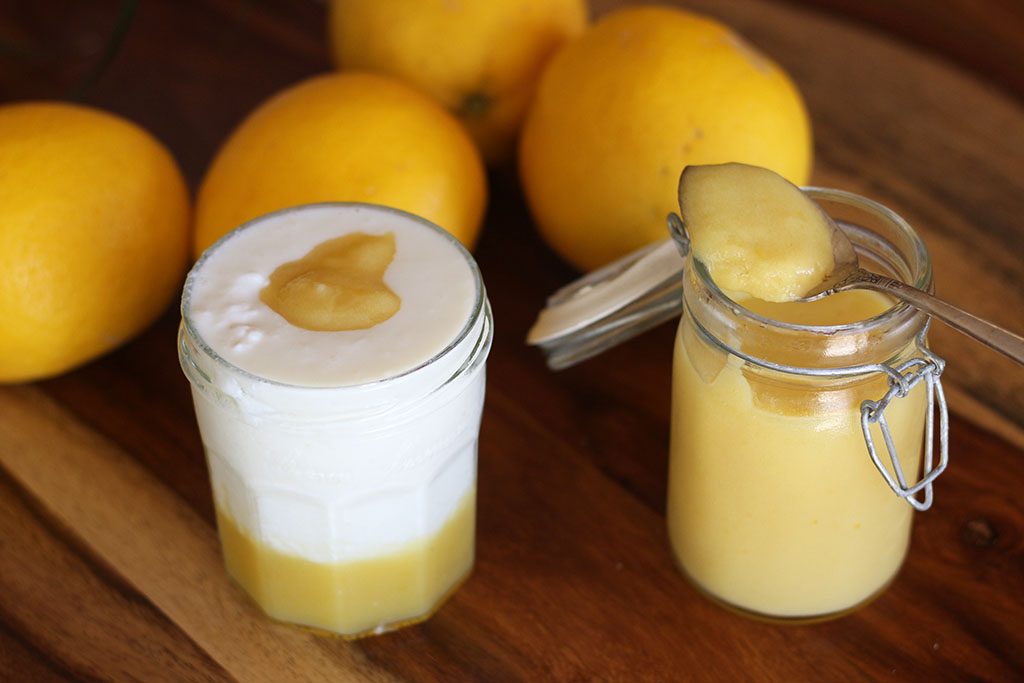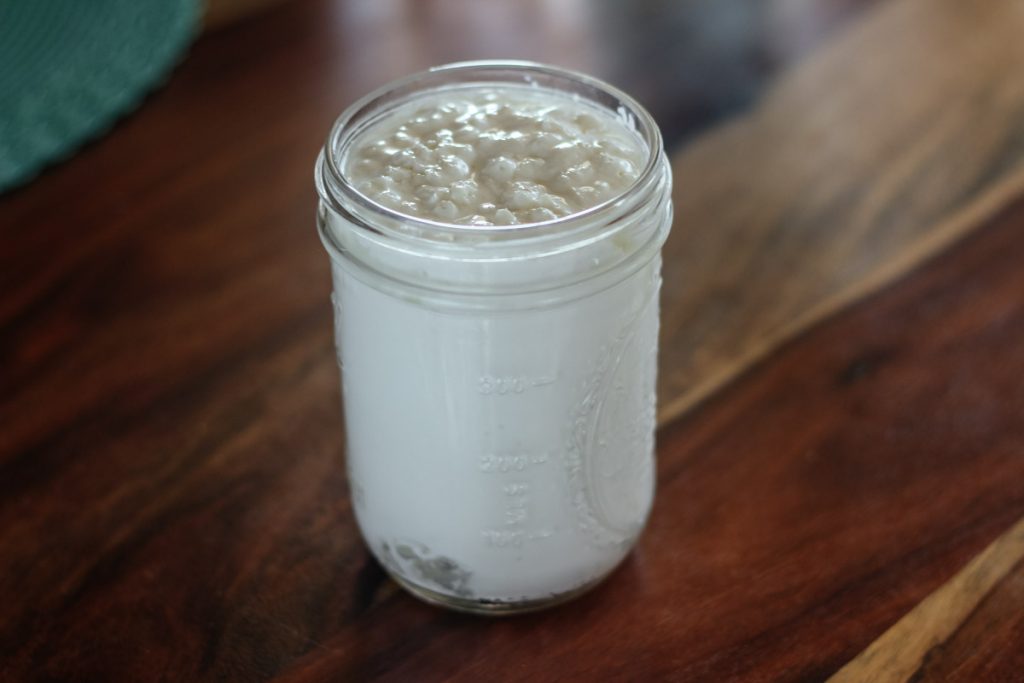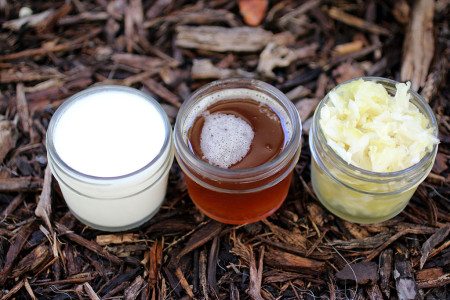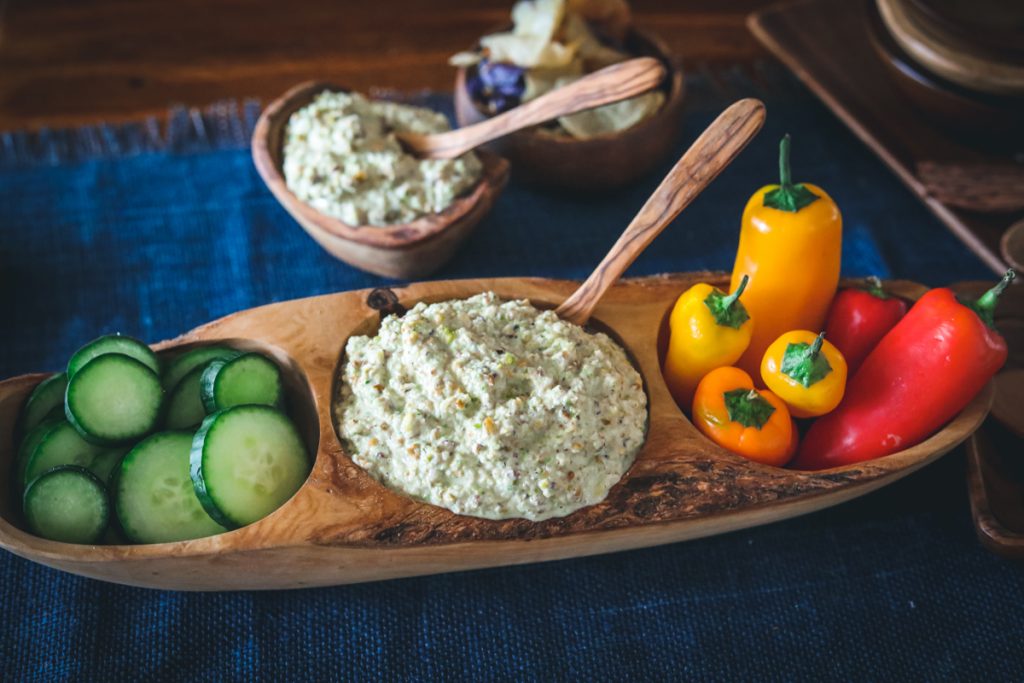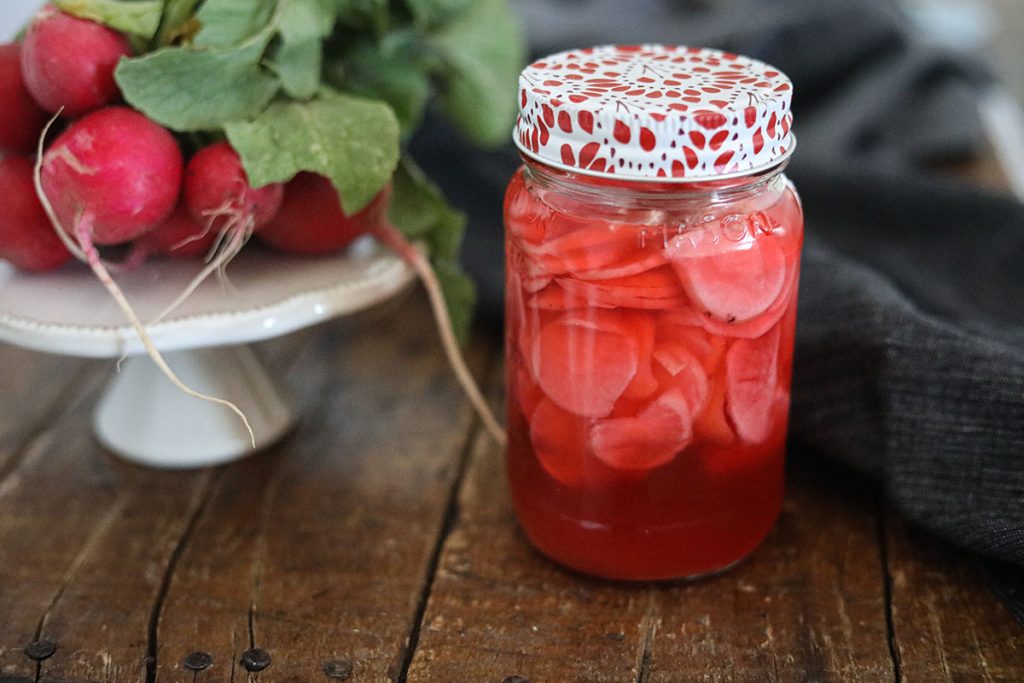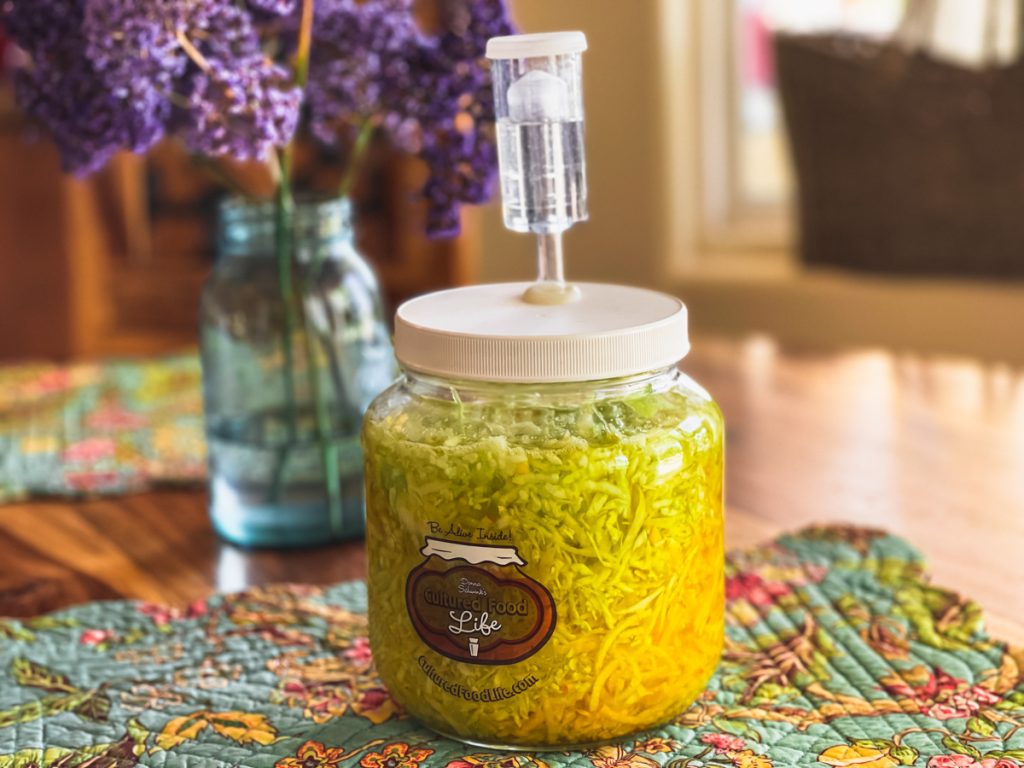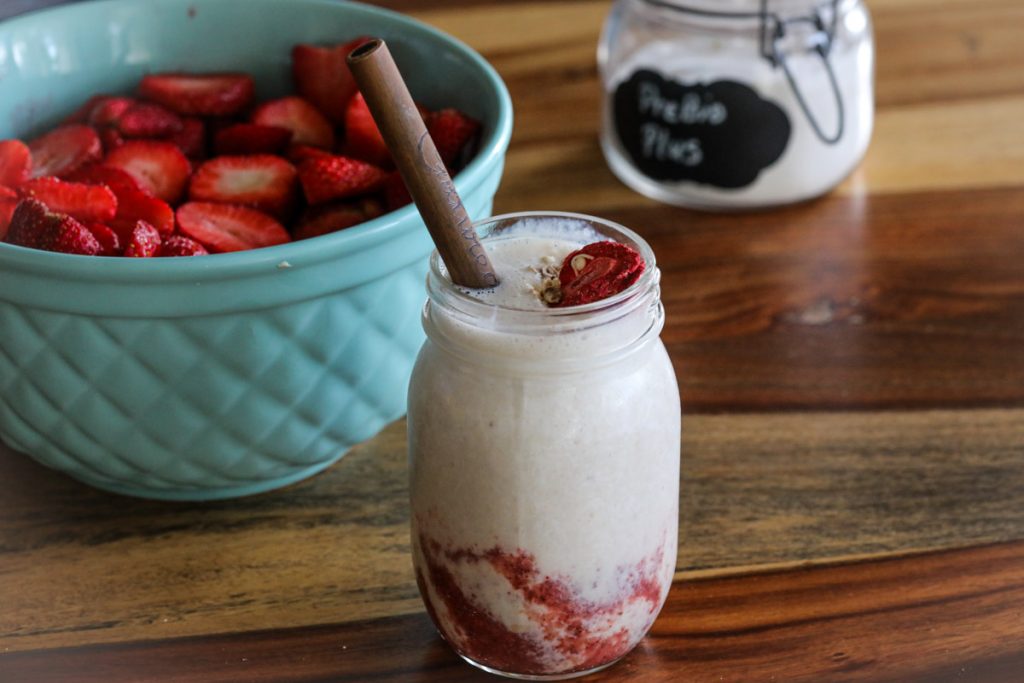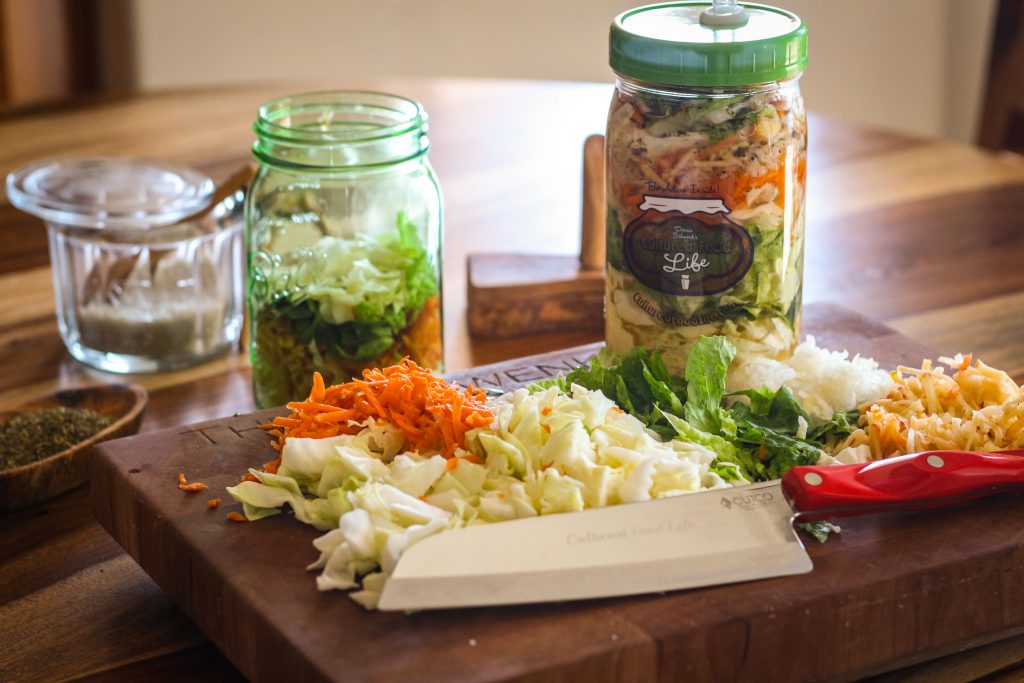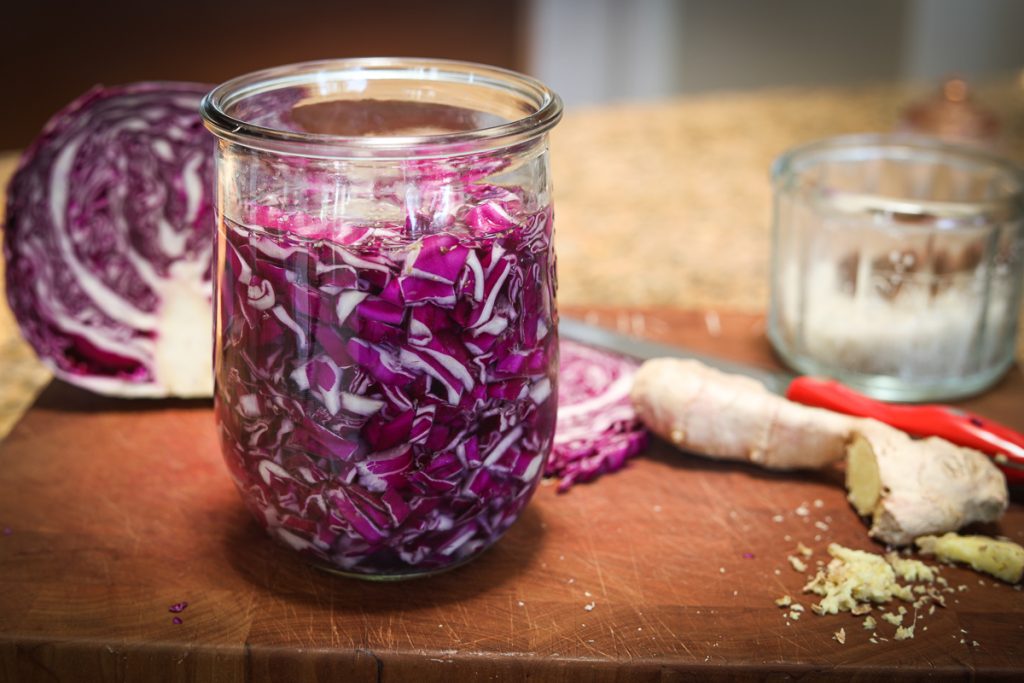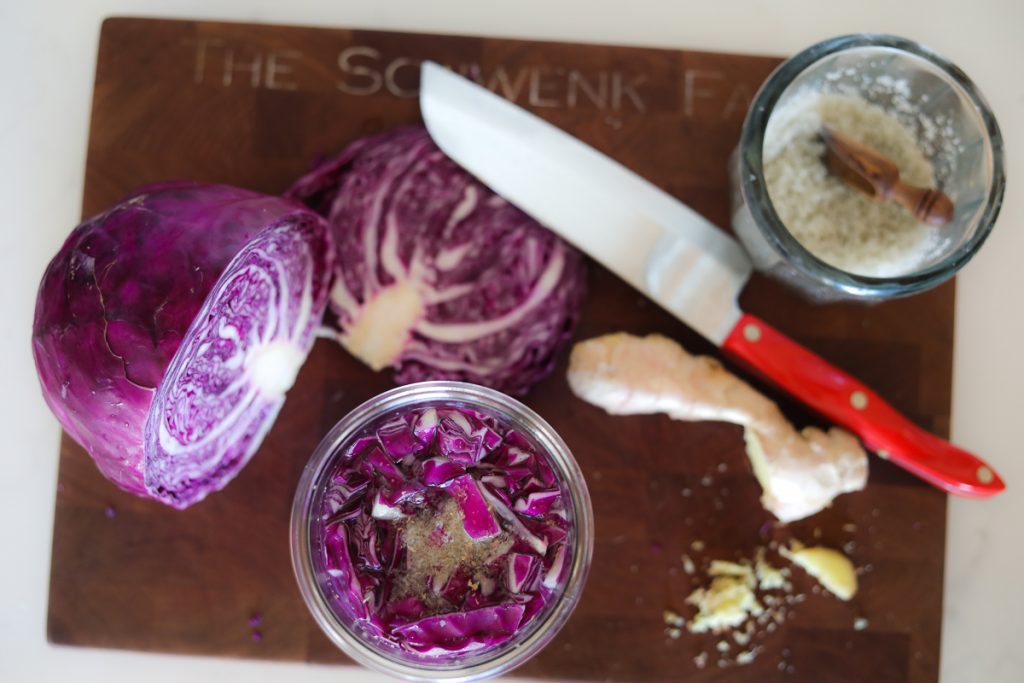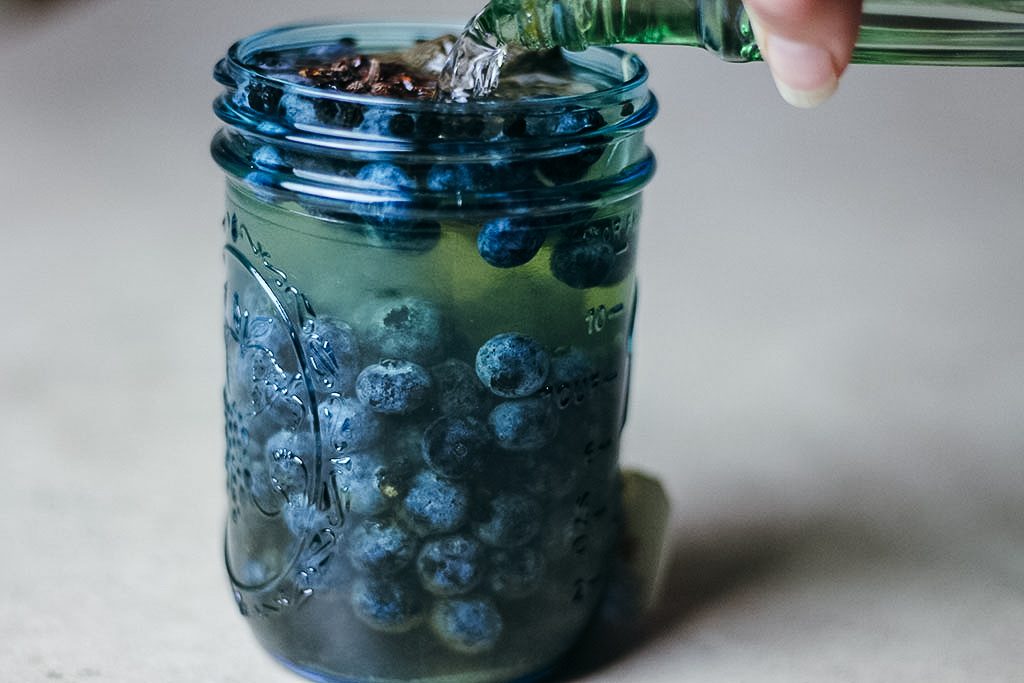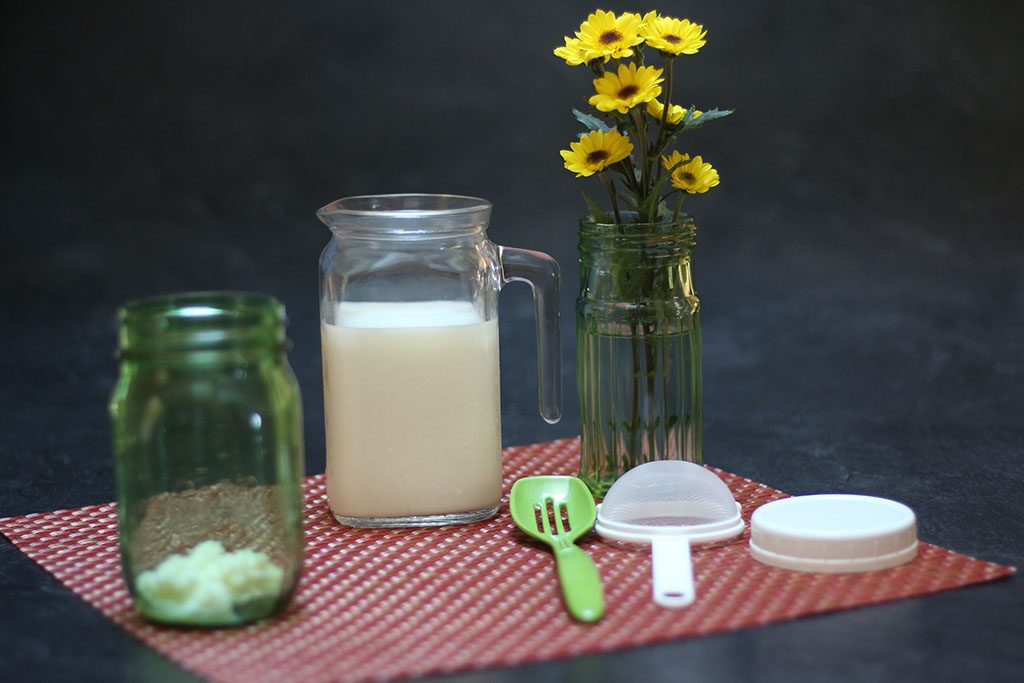
Probiotic Foods for Different Ailments
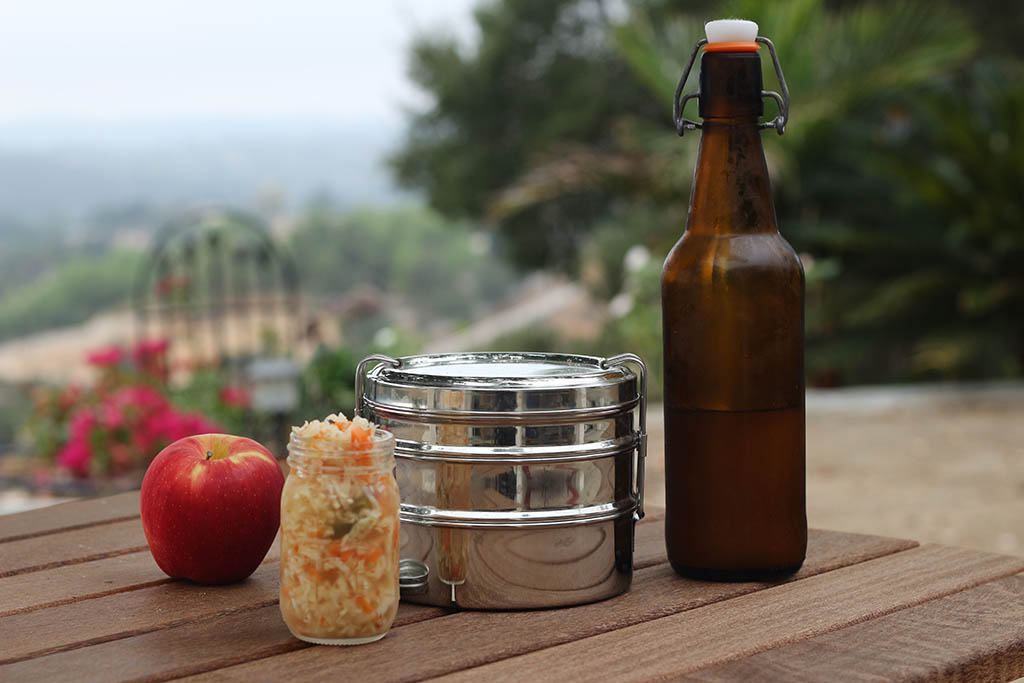 Probiotics have become an exciting frontier in health and wellness. Most people only think about probiotic supplements in a bottle, but today we're talking about foods that have probiotics in them. These probiotic foods have billions more probiotics than supplements. I think supplements are very good, but so often they are killed by stomach acid and never make it all the way to the parts of the body where they can do the job. Probiotic foods are different. They have a protective halo around them that speeds them to various parts of the body quickly because they're attached to food. We researched and found that one spoonful of cultured vegetables has more probiotics than a whole supplement bottle. And this, my friends, is far less expensive, works better, and will teach you so much about food and how it can work like medicine. I reach for these foods every day when I have symptoms that crop up that I need help with. These could be symptoms such as a headache, sinus pressure, seasonal allergies, virus, anxiety, hormonal imbalances, high blood pressure, diabetes, or even adrenal fatigue. These foods work like medicine and help me through the daunting struggles of my everyday life. I see these cultured foods fermenting on my counter and I feel a swell of emotion that I found them and they keep me well. Like friends that call to me and say, "We’re here to help you. Please eat us." These living microbes in a jar have been placed right within your reach.
Probiotics have become an exciting frontier in health and wellness. Most people only think about probiotic supplements in a bottle, but today we're talking about foods that have probiotics in them. These probiotic foods have billions more probiotics than supplements. I think supplements are very good, but so often they are killed by stomach acid and never make it all the way to the parts of the body where they can do the job. Probiotic foods are different. They have a protective halo around them that speeds them to various parts of the body quickly because they're attached to food. We researched and found that one spoonful of cultured vegetables has more probiotics than a whole supplement bottle. And this, my friends, is far less expensive, works better, and will teach you so much about food and how it can work like medicine. I reach for these foods every day when I have symptoms that crop up that I need help with. These could be symptoms such as a headache, sinus pressure, seasonal allergies, virus, anxiety, hormonal imbalances, high blood pressure, diabetes, or even adrenal fatigue. These foods work like medicine and help me through the daunting struggles of my everyday life. I see these cultured foods fermenting on my counter and I feel a swell of emotion that I found them and they keep me well. Like friends that call to me and say, "We’re here to help you. Please eat us." These living microbes in a jar have been placed right within your reach.
Hippocrates said, “All disease begins in the gut.” And I have seen this to be true. As we think about our health and future it can be scary, but it doesn’t have to be. There is help for us all.
How Do Probiotics Keep Us Healthy?
When you have a healthy amount of good bacteria in your gut, they crowd out pathogens that are looking to multiply into large numbers. When you have lots of good bacteria, the harmful bacteria diminish and clear the space for the healthier strains of bacteria. They protect the mucosal lining, or barrier, that keeps out viruses and pathogens. These good bacteria protect us from harmful bacteria that would otherwise make us sick. It is really a strong army inside of us that fights on our behalf every day.
Probiotic Foods For Different Ailments
This is a list of ailments that have been proven to respond well to the consumption of probiotics.
Click on each of the words to read more about each ailment and the probiotic solution or see the subjects below at the bottom of the page.
Acid Reflux
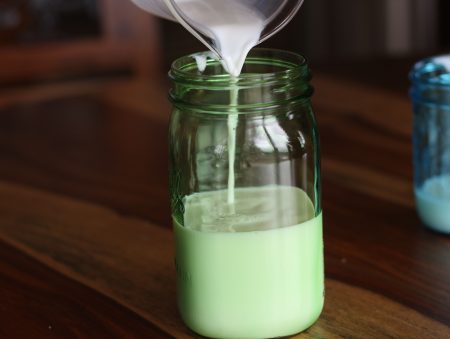
A man named John came up to me after one of my classes and said, “I take a glass of kefir every day before I go to work—without fail. I don’t sweeten it. I just drink it straight. I wanted to thank you because it allowed me to get off all my medication for acid reflux. I feel like a new man after years of struggle with this.” Then he smiled, shook my hand, and said, “Kefir is powerful medicine for acid reflux, and you should tell everybody who will listen.” I am heeding those words because I have heard time and time again how much kefir helps people who are struggling with acid reflux.
Gastroesophageal reflux disease (GERD) occurs when the lower esophageal sphincter malfunctions, allowing the contents of the stomach to flow up into the esophagus. Some speculate that an overgrowth of bad bacteria in the stomach causes undigested food to ferment. In turn, this fermentation causes gas to build up, eventually forcing the contents of the stomach up into the esophagus. This is what creates the symptoms of burning and pain commonly associated with acid reflux. Inflammation is one of the main culprits of GERD. Excess acid in the esophagus causes inflammation resulting in pain and irritation of the esophageal lining.
Allergies (Food)
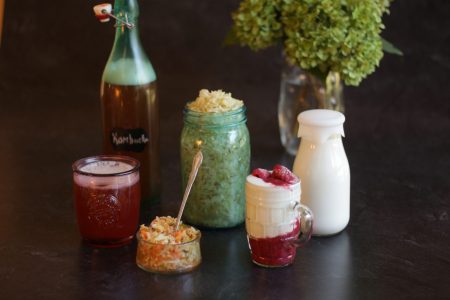
Maci had a cultured food with each of her meals and within a month her stomach stopped hurting. Within three months her food allergies started evaporating, and a year later she could eat anything she desired. She was no longer allergic to the mass of foods she had been allergic to. It felt like someone had casually handed me the keys to the kingdom of food allergies. I am so glad I heeded that casual advice because it changed everything for me. I began telling my friends about this miraculous method of healing food allergies and fixing their guts, and they began to heal too. Before I knew it, people were coming to me in droves and my life began to change dramatically. I started researching everywhere trying to find evidence of what I was witnessing and no evidence was to be found. Since this message of eating cultured foods at every meal was given to me to help my daughter, I decided I would share it with anybody who needed help.
I had no research and no proof besides the lives I was helping and witnessing - until now.
Allergies (Seasonal)

After I discovered the power that cultured foods held for me, I went on a search-and-destroy mission to fix and heal these springtime allergies that made me feel like the world was coming to an end. It took me seven or eight years to work with my body to understand what was actually happening. The process of healing was a long one because there was much to learn and I continue to do so.
Pollen
When your body has a reaction to pollen, your body sees pollen as a foreign invader and then overreacts by sending out inflammatory substances to compensate. Allergic symptoms are often nothing more than the body’s reaction to stress. The cells in our bodies have previously learned how to successfully cope with whatever stresses we presently have. It is already built into our genes, chromosomes, and DNA.
I have learned a lot about my immune system's response to pollen. My research in this area is ongoing and has me constantly amazed at how our bodies talk and communicate with us. When my adrenal glands are overworked and exhausted by the stress of life, I've discovered ways to support them and then I begin to heal.
Anxiety
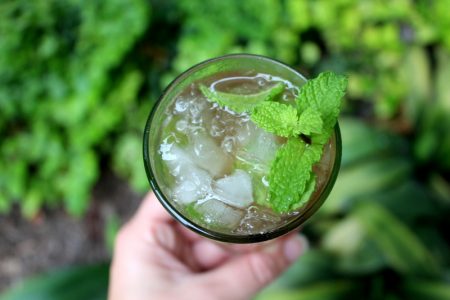
90% of the body’s total serotonin is produced in the digestive tract. Only 5% of serotonin is produced in the brain. Serotonin is a neurotransmitter which influences many aspects of your behavior such as mood, appetite, and pain sensation. The right amount of serotonin in the brain produces a calm and happy feeling.
Link Between Gut Bacteria And Mental Health
Researchers have established a compelling link between gut bacteria and mental health. They’re still trying to figure out the extent to which the human micro population that is established in early childhood can be transformed. In a study led by John Cryan, a neuroscientist in Ireland, anxious mice dosed with the probiotic bacterium Lactobacillus rhamnosus showed lower levels of anxiety, decreased stress hormones, and even an increase in brain receptors for a neurotransmitter that’s vital in curbing worry, anxiety, and fear. I have witnessed this for myself in others, and I know this to be true.
My life feels dramatically different than it did twenty-three ago, and I cannot wait for each and every day; but I did not always feel that way. fourteen years ago I was living in despair and I started chasing hope like there was no tomorrow. Desperate to find help for my body and help for my family, I was a woman on a mission to find hope any way possible; and then life turned around dramatically. I trained myself to find the things that would make me feel good physically and this website is the result of that journey. I don't just feel good, I feel fantastic most of the time and I am loving it. I never felt like this in my twenties or thirties and I think it is the only way to live. The best way I can describe it is passion, joy, and wellness. It makes every day magical. I have a lot of energy and feel like I have enough to carry out my mission on this earth, and that includes helping each and every one of you.
It is not just the food I am eating that makes me feel this way, but this is where it all started. I started to feel better physically, and then I connected to my mind and soul in a way I had never connected before. My life's purpose started unfolding before my eyes, and if you could see me writing this blog you would see the emotion that I feel and how very grateful I am to have found the answers that changed my life.
Let me explain to you some of the things that I believe changed my inner world, and as a consequence changed my mental state, my body, and my spirit.
Keep Reading: Can You Make Happiness in Your Gut
Arthritis/Joint Pain
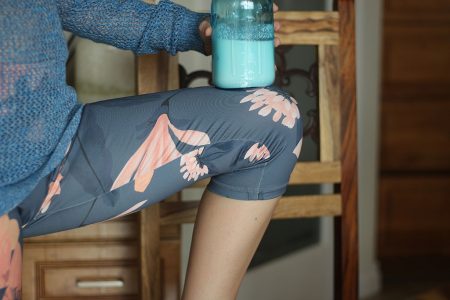
Your body is host to trillions of microbes. This microbiome can influence your health in a powerful way. In fact, Hippocrates stated, "All disease begins in the gut," and more and more we are finding this to be true. Microbes are most often protective, guarding against pathogens and inflammation; but strong evidence suggests that disruptions in the microbial ecosystem may cause or contribute to many chronic diseases by interacting with your immune system. This includes inflammation in the joints and even different types of arthritis.
If you have an inflammatory type of arthritis, changing your diet and consuming cultured foods loaded with probiotics might be very important for you. Consuming lots of beneficial bacteria appears to have an impact on inflammation, reducing common biomarkers of inflammation, including C-reactive protein.
Asthma
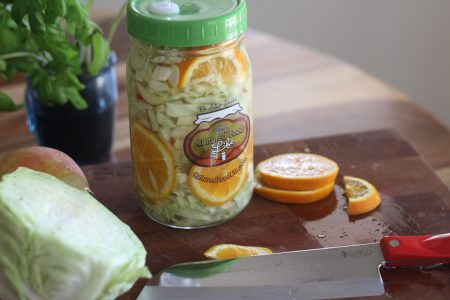
Another woman emailed me and told me the juice from cultured veggies stopped an asthma attack dead in its tracks. One afternoon she found herself having an asthma attack from a wind storm and had no inhaler to help her. Luckily, she had a cooler in her car with a jar of cultured veggies. She swigged the juice down as best she could since her airways were closing; and lo and behold, it worked!
In the American Journal of Epidemiology, they tied asthma to the consumption of antibiotics. This study found that when doctors give young children antibiotics, their risk of developing asthma before the age of six increases by 50 percent! In another study, researchers in the U.K., led by allergist Adnan Custovic, analyzed data from more than 1,000 children from birth until the age of 11. They looked at their medical records to determine how often doctors gave them antibiotics and how often they ended up with asthma. “We noted significantly higher risk of physician-confirmed wheezing after antibiotic prescription,” they wrote. There was a 70 percent increased risk for any kind of asthma case after the use of antibiotics. This speaks to the connection between healthy gut bacteria and the occurrence of asthma.
One study showed the anti-inflammatory and anti-allergic effects of kefir in a mouse asthma model.2 Kefir significantly suppressed an induced airway hyper-responsiveness (AHR) to inhaled methacholine.(Methacholine is used as a test to determine whether you may have asthma. It is a cholinergic drug that causes wheezing and shortness of breath.) Kefir significantly inhibited the increase in the total inflammatory cell count induced, and the distressed lung returned to normal. Kefir showed anti-inflammatory and anti-allergic effects in this study and may be used as a new therapeutic potential for the treatment of allergic bronchial asthma.
Autism

One study on autism that really made an impact on me was done by food microbiologist Glenn Gibson at the University of Reading. It is referred to by some people as “the trial that was so successful, it failed.” 1 The study was done with 40 autistic children all between the ages of 4 and 13 years. Each child was randomly placed in one of two groups. For three weeks, one group was given a probiotic supplement with the species Lactobacillus plantarum which is abundant in cultured vegetables. The other children were given a placebo. After three weeks, the researchers planned to switch what each group was receiving, supplement or placebo. However, the parents of the children taking the probiotic saw such positive results that they knew which group they were in and refused to switch to the placebo. They saw too many improvements, in not only digestive health but also mental and behavioral health, that they said it was heartbreaking to have to stop their child from taking the probiotic. The children were calmer and had a greater ability to listen and concentrate. The trial had such a large dropout rate that it was discontinued.
Autoimmune Disease
Our bodies house trillions of bacteria. If we feed them properly, they will keep our immune system running strong. These bacteria digest foods that are indigestible to us, such as fiber, and they make this food into vitamins and compounds that we need but can't make for ourselves. But what are you feeding your microbes? They multiply and do their job based on how you take care of them; and when you do it properly, they make you shine in ways like never before. It's a partnership and we need to pay attention to what our trillions of bacteria do each and every day. This large microbiome will change with disease and many experts are now linking autoimmune diseases to this shift in the gut.
What is autoimmune disease?
With more than 80 different types of autoimmune diseases, they're difficult to understand; but basically, the immune system finds proteins and tries to destroy them as if they were harmful foreign invaders. The immune system is quite an interesting system. It will go after a pathogen, such as a virus, and create inflammation to clear that pathogen from the body. However, an autoimmune disease causes the immune system to continue attacking these proteins and keeps us at an elevated state of inflammation.
Cancer/Chemotherapy

Gut Microbes Repair The Gut After Chemo
Along with cancer often comes the use of chemotherapy, which brings with it a host of other problems. There has been some research done on the connection between the gut and chemo. In one clinical study, researchers gave a group of mice an injection of chemotherapy that would, pound for pound, kill most adult human beings. Why? According to Jian-Guo Geng, associate professor at the University of Michigan School of Dentistry, “All tumors from different tissues and organs can be killed by high doses of chemotherapy and radiation, but the current challenge for treating the later-staged metastasized cancer is that you actually kill the [patient] before you kill the tumor.” So the goal was to test a recently discovered biological mechanism that focuses on preserving the integrity of the gastrointestinal tract—a mechanism that helped mice live through this lethal dose of chemotherapy.
Carpal Tunnel Syndrome

Approximately 260,000 carpal tunnel surgeries are performed yearly, but the good news is many doctors are now telling patients to add vitamin B6 to their diets, along with wrist splints and anti-inflammatories. There are some doctors who are divided on this, but some authorities are saying that around 90 percent of CTS cases can be eliminated by B6 supplementation. B6 worked for me so I am now a believer, but since that day I have learned a lot more that I want to share with you. Inflammation in the body and a lack of B6 can be at the root of CTS. Supplementing with vitamin B6 can get the job done, but you have to be careful not to take too much. Some studies involving lab animals found that excess B6 can harm the central nervous system. I also discovered that many people have trouble absorbing B vitamins, and having lots of healthy bacteria is crucial in helping you synthesize all of your B vitamins.
Candida

We need small amounts of the yeast Candida
Candida is a yeast/fungal organism that lives naturally within the human body. We need small amounts of the yeast Candida since it can digest things like heavy metals that our regular digestive system cannot handle. It is normally found in the body in low levels but an overproduction of this yeast can cause many problems, including the fungal infection known as Candidiasis. Candida can spread as a fungus does throughout the intestines and sinuses. Candida penetrates the bloodstream, releasing toxic byproducts into your body, which can cause a myriad of problems.
Don't avoid cultured foods
A lot of people avoid cultured foods—especially kombucha—when they have an overgrowth of Candida, believing that these foods actually make the condition worse. Saccharomyces boulardii (S. boulardii), a probiotic yeast abundant in kombucha, is able to effectively compete with and displace harmful yeast strains such as Candida.1 It also produces anti-fungal substances such as capric, caprylic, and caproic acids. This probiotic yeast will discourage pathogenic yeasts in its environment. In the case of kombucha, it is important to drink the first-fermented kombucha (and not the ones that have been second-fermented with fruit juice) to ensure that all the sugars are gone and the kombucha is properly fermented. Cultured foods can aid in the treatment of Candida overgrowth as long as they are made properly in order to remove the sugars and allow the probiotics to grow and become strong.
Colds/Flus
Over the last decade, more and more research has shown that having more good bacteria in your gut does in fact appear to improve the body's immune response. That, in turn, helps the body be better prepared to fight off certain infections, including the common cold and even COVID-19. (check out the link) Consuming prebiotics and probiotic foods regularly can lower your chances of getting a cold. If you do catch a cold, they may help reduce the severity of your symptoms and shorten how long they last.
Seventy percent of your body’s immune cells live in your gut
About seventy to eighty percent of your body’s immune cells live in your gut or intestine. This is roughly 100 trillion immune cells that make up your gut microbiome and play a big role in the strength of your immune system. The local immune system of the gut has two main functions: to protect against infections and to protect against the uptake of and/or harmful immune response to food antigens.
Having a healthy, diverse gut microbiome makes it difficult for illness-causing bacteria and viruses to take hold. If you have a weak, sparsely populated microbiome with a shortage of “good” bacteria, it can leave you open to illnesses — like colds and the flu.
The intestinal immune system contains more antibody-producing cells than the rest of the body put together. 1 The fluids that come from the digestive system (such as mucus and saliva) are as rich as breast milk in both health-supporting and disease-preventing factors. 2 Our immune systems make antibodies that fight bacteria, viruses, and toxins. One of the most common antibodies, called secretory IgA (immunoglobulin A), is found in mucous membranes lining the nose, windpipe, and lungs. IgA acts as the body’s warning and security system. When IgA levels are adequate, these antibodies can prevent cold and flu viruses from entering the body through the nasal mucous and respiratory tract. Having enough IgA is extremely important because these special antibodies go after both viral and bacterial invaders in your upper respiratory tract, deactivating them and allowing the immune system to destroy them. Having enough IgA can prevent a cold or flu from getting a foothold in your respiratory tract because once a virus infects cells it can replicate and wreak havoc.
Colitis, Crohn's, Ulcers
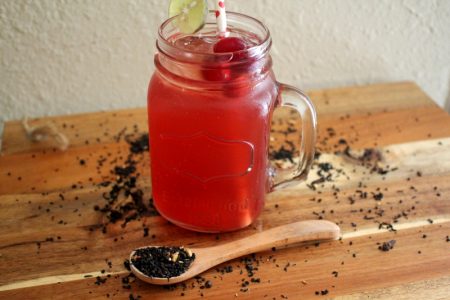
Jordan Rubin, founder of Garden Of Life, had serious and debilitating Crohn's disease. In his book, "The Raw Truth," he said he drank several quarts of kefir a day and took other probiotic foods and supplements to heal from this dreaded disease.
Clinical studies in mouse models 3 suggest that probiotics may help reduce flares and prevent complications of Crohn's or colitis such as pouchitis. More studies are needed, but using natural sources of prebiotics and probiotics such as kefir and cultured veggies are good choices to supply probiotics and prebiotics in natural foods choices.
In one study, 34 patients with mild to moderate ulcerative colitis who had not responded to conventional therapy underwent six weeks of treatment with a high-potency probiotic mixture containing eight strains of probiotics, many of which are also found in cultured foods: Bifidobacterium breve, Bifidobacterium longum, Bifidobacterium infantis, Lactobacillus acidophilus, Lactobacillus plantarum, Lactobacillus paracasei, Lactobacillus bulgaricus, and Streptococcus thermophiles. The outcome was impressive: 77 percent of participants responded favorably to the probiotic treatment. And there were none of the adverse effects that often accompany conventional treatment.4,5
I've seen cultured vegetables, kombucha, and kefir help with so many gastrointestinal disorders, and I've even witnessed firsthand my son healing from an ulcer that was causing him severe pain every time he ate. Kombucha and kefir have been found to help the healing process with those who have ulcers. The special probiotic bacteria and yeasts in kombucha protect the lining of the gut by reducing the acids that damage the mucous membrane. It was found that this works as well as the prescription drug Prilosec in healing stomach ulcers.6 Cultured vegetables play a part in healing ulcers as well. Vitamin U, which is not actually a vitamin but a compound called S-methylmethionine, is abundant in cultured cabbage and its juices. It has been shown to successfully treat ulcerative colitis, acid reflux, and peptic ulcers.7,8 Kefir was something he consumed every morning, and with this trilogy combination, it helped him heal in about two months. In addition to adding the probiotic foods, he did eliminate any acidic foods that were aggravating his condition.
Heart Health
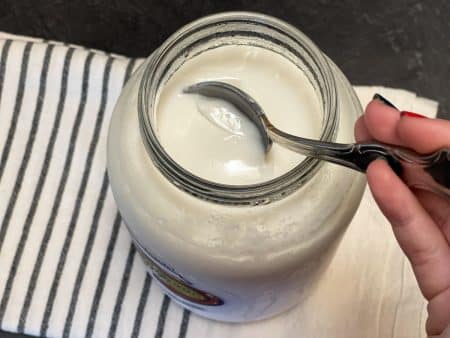
Heart health is more than just diet and exercise—it starts in the gut! Research shows a strong connection between gut bacteria and cardiovascular health. Conditions like SIBO and IBS can increase inflammation, which plays a major role in heart disease.
But here’s the good news—fermented foods like kefir and yogurt can help! Kefir is packed with over 50 strains of beneficial bacteria and yeasts that work to lower blood pressure, reduce bad cholesterol, and improve overall heart health. Studies show that drinking kefir daily can even decrease the risk of cardiovascular events by reducing inflammation and improving metabolic markers.
Yogurt, especially our special Yogurts made with L. Gasseri and L. Reuteri, has been shown to help restore gut balance, improve digestion, and support heart health. These probiotic strains have been linked to lower cholesterol, improved metabolic function, and even weight management—important factors for heart health!
Kefir and yogurt also play a key role in strengthening the gut lining, which is crucial for keeping harmful bacteria and toxins from entering the bloodstream. Plus, feeding your gut with foods like apple peels helps nourish Akkermansia, a powerful microbe that supports gut integrity and overall well-being.
Diabetes
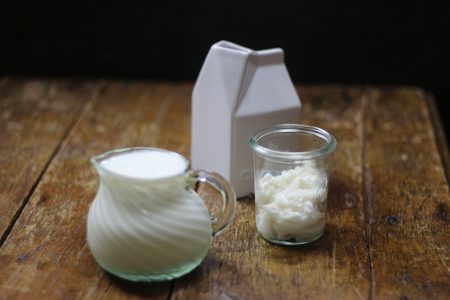
How could I have gone from running every day and racing through life to having diabetes and high blood pressure? And I was watching my extended family, one by one, deteriorate as well. It really broke me. I felt as though it was my fault and I could not find my way out of this situation. Having a four-pound preemie who was delivered prematurely in an effort to save my life just heaped more guilt upon me as I watched her struggle to grow and thrive. It was these experiences that changed my life. Changed everything, actually, and caused me to cry out from a deep place in my soul for help. Standing on the other side of these experiences, though, has caused me to be so thankful for the pain they caused.
Many studies are confirming the presence of altered gut flora in humans and animals with obesity, insulin resistance, diabetes, and hypertension. Growing research suggests that people who are obese and resistant to insulin have microbes in their gut that are different from the microbes in healthy people.1 There is evidence that feeding probiotics and prebiotics to those with diabetes-related obesity and metabolic disorders can dramatically reduce insulin resistance, restore glucose sensitivity, and lower blood pressure and weight by altering their gut flora and encouraging the right kind of microbes to thrive and grow.2 This adds to a feeling of overall well-being. These conditions can be very draining and tax the body, so when you balance your gut, you liberate energy, lifting your mood and outlook on life.
Diarrhea/Constipation
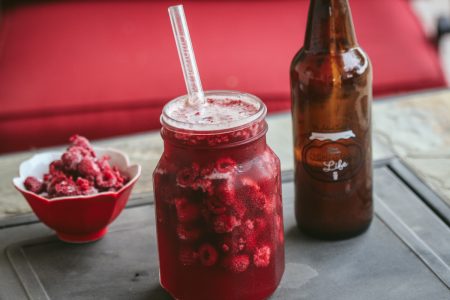
Saccharomyces boulardii is a powerful probiotic that cannot be killed by antibiotics. When I discovered that S. boulardii was in kombucha and was helping a friend with acute diarrhea (when nothing else would), I did more and more research on this powerful probiotic only to find more benefits from making and consuming kombucha.
S. boulardii is one of the most thoroughly researched of all probiotic supplements.4 It is now used to treat Clostridium difficile (C. diff), acute diarrhea, antibiotic-associated diarrhea, some parasitic forms of diarrhea, and other gastrointestinal disorders.5 S. boulardii can also act as a decoy to harmful pathogens. It attracts and binds with the pathogens, keeping them from attaching to the intestinal wall and doing damage. Many people have expressed how much kombucha has helped them with chronic diarrhea. It seems to be the only thing that really works for them, and it's simply a delicious fermented tea - not a drug that can have side effects.
Eczema
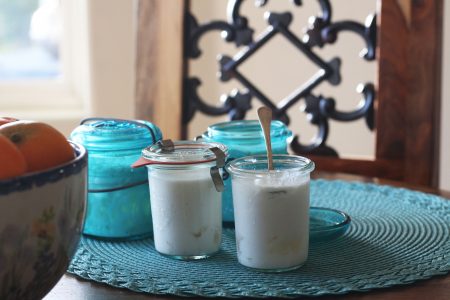
Eczema and Dermatitis
Eczema can also be called dermatitis and is caused by an overabundance of antibodies in the system called immunoglobulin (IgE). The production of IgE is the body's overreaction and attempt to protect itself. This is why eczema is considered an autoimmune condition which means that the body is basically harming itself.
Underlying causes can be multifaceted and you have to be a little bit of a detective to assess what's going on that has your skin erupting and causing distressing symptoms. Remember, disease is not the enemy. It's the warning sign and the body's cry for help.
Look at the Gut First
The first place to look is in your gut. Many people with eczema have allergic reactions to food. We often see that people with food allergies are missing important gut bacteria that have been killed by antibiotics. Keep reading . . .
Fibromyalgia
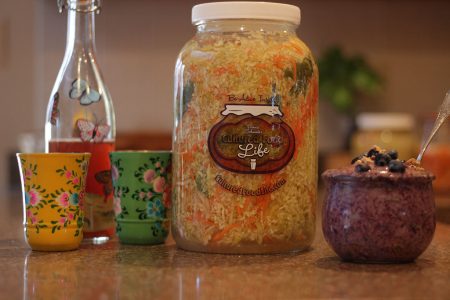
This would indicate that there is a correlation between fibromyalgia and gut problems. The medical community does not yet know what causes fibromyalgia or agree on how to remedy it; but time and time again, I see people who fix their guts finding relief or improvement from fibromyalgia.
Sherri, one of my class participants, shared her fibromyalgia story:
Over 20 years ago, I was diagnosed with fibromyalgia. For years, I’d had an all-over body ache that felt like inflammation. It was an ache that I had every day. I was especially achy when we had rainy weather.
After having a terrible bout with a stomach virus that lasted about a week, I searched out information about how to heal my gut issues. I found your videos and that’s where it all began. After watching your videos, I immersed myself in making kefir, cultured veggies, and kombucha. After three weeks of filling myself with these wonderful foods, I woke up one morning and realized I didn't have that all-over body ache anymore. It’s been that way for the past eight days, and I’m so excited about it. Also, it’s calmed my painful gastric problems, and I have a sense of well-being. I know this is something that I’m going to continue to do because it’s improving my health. ~Sherri
Food Poisoning
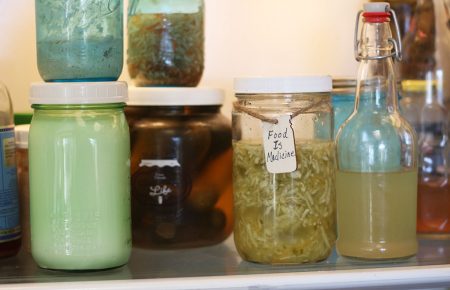
Most of the immune system resides in the gut
Most people do not realize that 70 percent of the immune system is located in the digestive system. The large majority of the body’s immune cells are located in the digestive tract and these immune cells are assisted by the probiotic microorganisms that live there. These powerful microbes can recognize the presence of a pathogen and stimulate the body to initiate an immune response to fight off threats and to attack these harmful invaders.
Certain strains of probiotics support our immune system by killing disease-causing pathogens with the anti-microbial substances they produce called bacteriocins. These mighty helpers work to eliminate pathogens from the body. Here’s where having lots of healthy microbes is important. Good bacteria help us to eliminate harmful or pathogenic bacteria and viruses by outcompeting the harmful microbes for food and other resources. Having lots of good bacteria takes up space within the digestive tract which makes it harder for the bad microbes to take hold and cause harm.
Gluten Pain
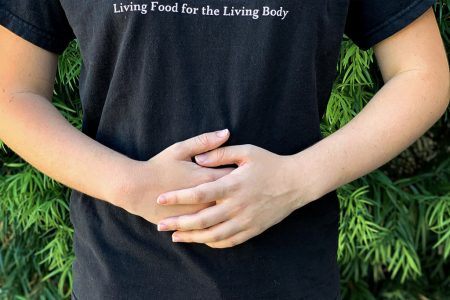
The Underlying Problem
I started researching the foods that hurt her gut the most and eliminated them from her diet, but that was only a temporary fix - the underlying problem was still there. Here is what I found - the reason she was having so much trouble digesting grains was really a three-fold problem. First, her gut lining was damaged. Years of antibiotics had stripped her of all her good bacteria. Stress, certain foods she was eating, and a lack of nutrient-dense foods were destroying her gut lining. The lack of proper bacteria to turn her foods into vitamins and fatty acids was causing changes in her gut. There was nothing to protect her gut lining. She had been on an extremely low carb diet for several years, and her microbes were in dire need of fiber in the form of prebiotic carbohydrates such as fruits, vegetables, nuts, seeds, and grains to thrive and grow. She was only eating 30 carbs a day, essentially starving her microbes and was taking antibiotics. When your microbes don't have any food, this can cause the pH in your gut to shift. This shift can favor the growth of less healthy, negative endotoxin-producing gut bacteria such as Bacteroides, and reduce the growth of positive bacteria that are “more healthy” for your gut. Jeff Leach from the American Gut project states,1 "As pH shifts, prospects for opportunistic pathogens increase, as do opportunities for gram-negative bacteria like Bacteroides and Enterobacter. When you add this up – and a lot more shifts in the microbial ecology of the low-carb gut – you most certainly have a classic case of microbial dysbiosis – as the name implies, an imbalance. This dysbiosis can lead to issues associated with Inflammatory Bowel Disease, autoimmune disease, metabolic disorders, and so on." This now makes sense to me since it was the perfect storm - she was a perfectly normal teenager with no food allergies, and suddenly she developed all kinds of symptoms and food allergies she'd never had before. Antibiotics had stripped her of all her good bacteria and left her defenseless. This, along with starving her microbiome with a lack of fiber to feed her microbes, was changing the world within, causing great pain and symptoms that changed the course of her life. We also found that just eliminating the offending foods will eliminate the pain to a degree. but then you need to fix the microbiome to re-establish a new inner microbiome.
Gut Health As You Age
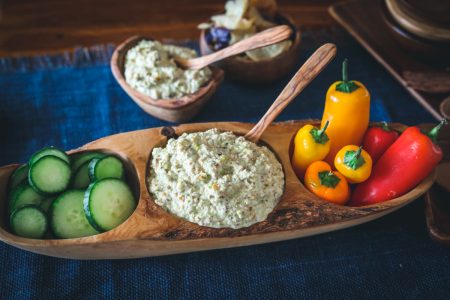
S. boulardii is one of the most thoroughly researched of all probiotic supplements.4 It is now used to treat Clostridium difficile (C. diff), acute diarrhea, antibiotic-associated diarrhea, some parasitic forms of diarrhea, and other gastrointestinal disorders.5 S. boulardii can also act as a decoy to harmful pathogens. It attracts and binds with the pathogens, keeping them from attaching to the intestinal wall and doing damage. Many people have expressed how much kombucha has helped them with chronic diarrhea. It seems to be the only thing that really works for them, and it's simply a delicious fermented tea - not a drug that can have side effects.
H. Pylori

H. pylori is a type of gram-negative bacteria that infects the lining of your stomach. This bacteria can stick to stomach cells and your stomach can’t protect itself very well. It can cause inflammation and damage the tissue in your stomach and the first part of your small intestine (the duodenum). In some cases, it can also cause painful sores called peptic ulcers in your upper digestive tract. H. pylori can also get the stomach to make more acid, causing painful symptoms of gas and bloating.
But here's the good news!
Many traditional fermented foods and beverages that contain probiotic microbes can help with H.pylori. A few studies showed that consumption of probiotic foods such as kefir, cultured vegetables and kombucha are beneficial in helping with H. pylori infection. These probiotic foods bring in a fresh inocula of microbes to your gastrointestinal tract. Several strains such as Lactobacillus, L. plantarum, and Saccharomyces are especially effective in bringing balance to the gut when infected with H. pylori.
Saccharomyces boulardii is another probiotic yeast that is found in kombucha that can help with H. Pylori and candida. Click the link to read more.
High Blood Pressure
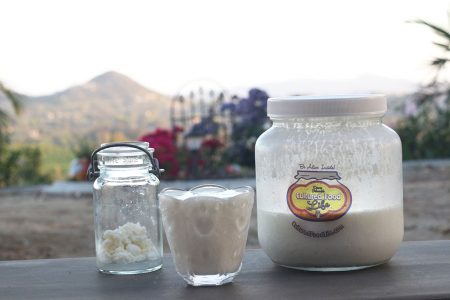
A couple of months later, I was reading a book called Bacteria For Breakfast which described fermented milk products and how they lower blood pressure in people with mild hypertension. To combat hypertension doctors often prescribe what is known as an ACE-inhibitor, a drug that helps decrease the tension in blood vessels, thus decreasing blood pressure. What the study discussed in Bacteria for Breakfast found is that some strains of probiotic food1 produce their own ACE-inhibiting substances during the fermentation process.
High Cholesterol
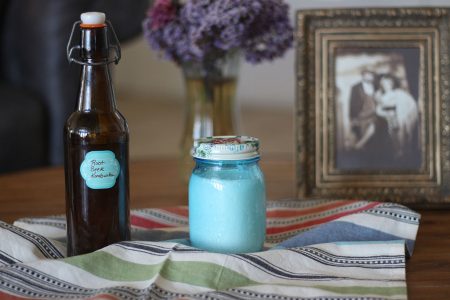
A double-blind study with 60 volunteers aged 18 to 65 looked at the effects of probiotics on cholesterol. Each day for 12 weeks, one group received a capsule that contained 120 billion viable Lactobacillus strains, which happen to be abundant in cultured vegetables. The other group got a placebo. There was a 13.6 percent overall reduction in total cholesterol in the people who took the probiotic as compared with the placebo group. Moreover, the participants with the highest cholesterol at the start of the study reduced their total cholesterol by 17.4 percent. Their LDL cholesterol—the “bad” cholesterol—was lowered by 17.6 percent, compared with the placebo group. 10 This is a significant reduction in total cholesterol. Ingesting cultured foods provides not only the Lactobacillus strains that were used in the study but also various others that add to an overall balanced gut.
Histamine Intolerance
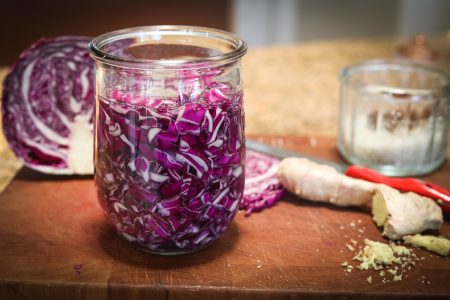
Many of your gut bacteria break down histamine. If you get an imbalance in your gut due to antibiotics, stress, or a diet high in processed foods, the good bacteria strains lessen and you'll have more of the pathogenic bacteria which may lead to impaired histamine degradation and increased histamine load. But here's the catch - certain probiotic strains are histamine-producing, while other strains are histamine-degrading which should improve your symptoms. If you have too much of the histamine-producing kind and not enough of the other, then you're in trouble.
Histamines are produced inside your body, but there are also a variety of foods that naturally contain histamines. If your gut bacteria is out of whack, then these foods can cause the release of histamine, or block the enzyme that breaks down histamine. Your body also produces histamines, too. It's not the foods that are creating the problem. The problem is your body's inability to break them down.
Hormone Imbalance
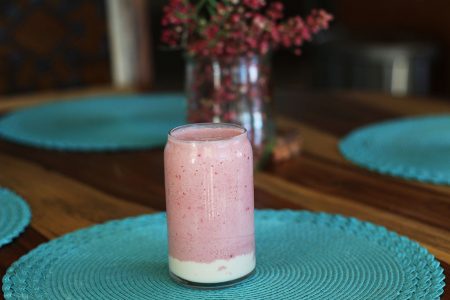
So, let's say you have some imbalances in your gut flora. You are 100 trillion bacteria and when they become unbalanced by not having enough of the "good guy" bacteria, then harmful pathogenic bacteria and yeasts (such as Candida) start to spread and grow in your gut. The good bacteria are diminished and then your body's detoxification system becomes hindered. Hormones that are normally eliminated via the gut and liver stay circulating in your system, and then you end up with hormonal imbalances that make you miserable.
Hormones are broken down and detoxified in two ways in the body: first in the liver, and then in the colon. When the digestive tract is out of balance, your estrogens, especially, are not detoxed properly which leads to symptoms of estrogen dominance. The most important step you can take to support gastrointestinal function is to rebalance your gut flora - especially clearing out yeast. I have found this step to be the most profound in dealing with any hormonal imbalance - especially PMS.
Eating probiotic foods will help keep out pathogens, parasites, bacteria, and viruses, especially Gardnerella, Proteus, Chlamydia, Campylobacter, Neisseria, Treponema, and Salmonella.2 These are also the urinary tract bacteria that cause yeast infections and bladder infections. These infections are common when you have hormonal imbalance!
Perimenopause And Menopause
After your body starts to slow down and you start to go into perimenopause or menopause and the ovaries are done with their cycles of estrogen and progesterone production, the adrenal glands' hormone production is meant to “kick in” and make up any deficit. After this ends, your adrenals can still keep your hormone levels regulated. So your adrenals work harder but if you have worn them out, you're going to have a hard time.
Irritable Bowel Syndrome (IBS)
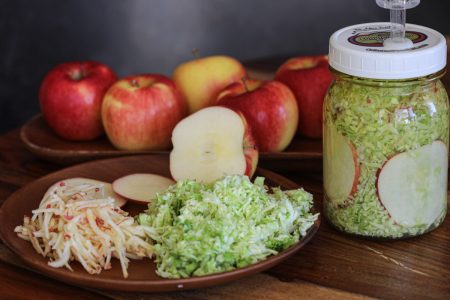
So what do scientists say about the connection between probiotics, a healthy gut, and IBS? One 2014 study looked at 28 people suffering from IBS.1 Some of the participants were asked to consume a fermented milk product for four weeks while others served as a control group. In those people consuming the drink, researchers saw an increase in the bacteria that produce butyrate, an acid that is beneficial for gut health. In response, the symptoms of their IBS also improved, while the symptoms of the people in the control group remained. The conclusions drawn in this study mirror those of a study done in 2009 with 34 participants.2
Another study, done in Norway, compared three groups: two groups composed of people who were suffering from IBS and one with subjects who had no symptoms of IBS. One of the IBS groups was given dietary advice, and the other two groups didn’t receive this advice. Many people who have IBS avoid dairy because it causes their symptoms to flare up. The people in the IBS group who got advice were told to consume fermented milk products containing probiotics. Interestingly, the people who consumed the most fermented dairy did significantly better than their counterparts. They reported an improvement in their quality of life and a reduction of abdominal pain.3
Kidneys/Kidney Stones
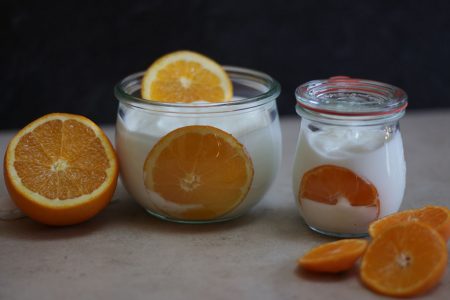
As of late, people have been sending me more and more stories of how these foods have improved their kidney health. A woman recently shared with me how she had just discovered that she had kidney disease and that her children had it too. Within just a few months of consuming cultured foods, new tests came back confirming normal kidney function. She was astonished, as was her doctor, that the kidneys could heal so rapidly, and it made her a strong believer in the power of cultured foods.
Here is Peni's story - one of my favorite stories about cultured foods and kidney health:
I wrote to you a couple of months ago desperate for some help. My kidney doctor had just told me that my kidneys were functioning at 20 percent and I needed to choose which form of dialysis I would prefer. This seemed a death sentence for me. I have had several health problems through the years, and this was heading for a crash really soon! I asked you if you had ever heard of anyone who had tried this "cultured food and drink" way of life with any results of repairing kidney function and you told me you had not heard of this, but you gave me encouragement to try it anyway. In my grief and despair, I decided to do just that. Donna, I went back to the kidney care doctor just recently and he just kept shaking his head and said he didn’t understand how or why this way worked, but that not only had I lost weight in the two months since I last saw him, but my kidney function ... went UP 10 percent!!!!! Yay God! He said he had never heard of this happening before. The nurse came back in after the visit and said in all the years she had worked for him, she had never seen him speechless like that. All this, Donna, after only doing it for approximately 1-1/2 months! ~ Peni
Mercury Poisoning
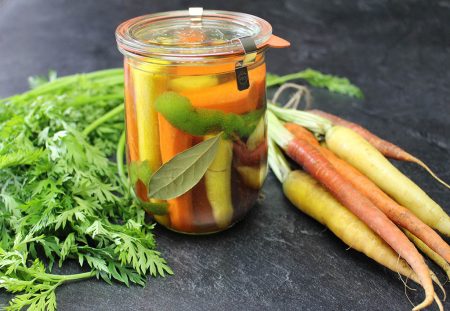
Mercury poisoning
She was right. I was making up all kinds of scenarios in my head of what could be wrong. I asked for wisdom, and a few days later I received it. I was going to sleep one night and a thought popped into my head. "I had all my mercury fillings removed a week ago and this is when all this started. Could I be feeling the side effects of mercury poisoning?" Apparently, after you have your fillings removed, it stirs up the mercury that is sealed in your mouth and the vapors can affect you for a month before it starts to subside. Could this be the cause of all these symptoms? Did I lower my immune system? Was my body struggling and did it need my help to detoxify from all of this? Well, now I had a plan and I was on it big time. I would help my body detoxify, and I was good at this. It needed me to help it. So I upped all my cultured foods and prebiotics (which included fresh green juices), included lots of cultured vegetables, extra doses of kefir, and a bunch of kombucha. I quickly felt ten times better, and in a few days, I was back to feeling like myself again.
SIBO
Sleep Problems

Melatonin is a hormone that helps us feel sleepy at night. It was thought that only the pineal gland made melatonin, but they have also found that the gut produces 400 times more melatonin than the pineal gland. Even if the pineal gland is removed, melatonin stays stable. And they have recently found that low levels of melatonin have been linked to leaky gut and IBS. So much happens in the gut that we are unaware of and taking care of what you put in the gut changes not only your waking hours but your sleeping hours too.
The vagus nerve wanders from the brain into organs in the neck, chest, and abdomen. This nerve has two bunches of sensory nerve cell bodies, and it connects 90% of the neural fibers which transmit information from your gut to your brain. Essentially it is part of a long circuit that links the neck, heart, lungs, and the abdomen to the brain.
Stomach Acid
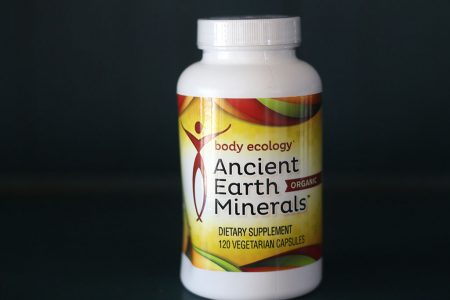
If you're having these problems, even though it feels like your stomach is producing too much acid
actually the reverse is true. You need more acid!
Causes Of Low Hydrochloric Acid — Low Stomach Acid
- Stress — hydrochloric acid (HCL) can be inhibited by stress, emotion, or worry. High amounts of stress will exhaust the body and HCL production diminishes.
- Zinc deficiency
- B vitamin deficiency
- Age – as you get older, stomach acid production tends to decrease
- Mineral deficiencies
- Eating a nutritionally-deficient diet of processed and fast foods
- Overuse of antacids
One of the first things I discovered was that I had a zinc deficiency. Zinc is one of the most important minerals in the production of hydrochloric acid. If you don't have enough minerals, and especially zinc, then your stomach won't make the proper amount of HCL.
Index
Sugar and Immune System
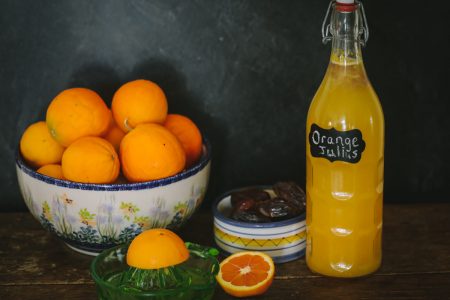
On a daily basis, our body uses antioxidant vitamins to boost the immune system. One of the most important antioxidants for this is vitamin C (sometimes known as ascorbic acid). Studies have shown that vitamin C helps reduce cardiovascular disease, coronary heart disease, stroke and improves prenatal health problems, eye disease, and even skin wrinkling. We don't have the ability to make this special vitamin in our bodies, so we must obtain vitamin C from the diet. One of the best ways to do this is through cultured foods - especially cultured vegetables. Lactic acid fermentation increases the micronutrient profile of foods. Not only does vitamin C increase when you ferment foods, but many other vitamins, too, such as A and B vitamins. All of the essential nutrients boost our body's ability to fight infections and invaders and keep our adrenal glands running at optimal levels.
Toenail Fungus

When you have toenail fungus, ringworm, or athlete's foot it can be a sign of Candida virus or yeast within your system. People who have taken a lot of antibiotics, undergone chemo, or have taken a lot of steroids can all be susceptible to these types of fungal infections. Also, people with compromised immune systems are even more susceptible to this type of thing and here's why. Having lots of healthy bacteria in your body will control all of these types of infections by crowding out the fungal yeasts and making them go into their proper place in your body. You have good probiotic yeast in your body too, but when you've taken a lot of antibiotics, or your body has been through chemo, that decimates the good and bad bacteria. Then when yeast sees all the extra room, it takes advantage of it and multiplies quickly, leaving you with an imbalance in your gut flora. And believe you me, you don't want this.
Unbalanced Gut

Do you have any of these symptoms?
- Constipation
- Excess intestinal gas
- Chronic diarrhea
- Hormonal disruptions
- Anxiety or depression
- Digestion problems
- Food cravings and addictions
UTIs & Yeast Infections
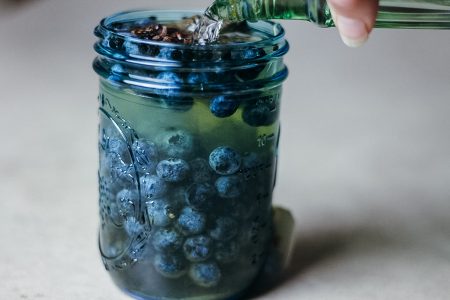
Bladder infections often cause a frequent urge to urinate, a burning sensation during urination, and bloody, cloudy, or pungent-smelling urine. While a yeast infection may include pain when urinating, you’ll also experience pain and itchiness in the affected area. Vaginal yeast infections also typically cause a thick, milky discharge. UTIs are normally treated with antibiotics; but what you really need to know is that if you do have to take an antibiotic, you need to replace the good bacteria that is wiped out by the antibiotics.
Dr. Ann Stapleton, Professor of Medicine at the University of Washington, stated, "When a UTI occurs, gut bacteria like E. coli take up residence in the vagina and displace good bacteria that normally live there. UTIs cause pain during urination, and can even lead to back pain, fever. and bladder and kidney infections. Women take antimicrobial medications to combat these infections and the medications wipe out all bacteria, both good and bad. But for some women, the bad bacteria grow back to cause a recurrent UTI. Probiotics help to restore the natural bacterial environment to make it hard for the bad bacteria to cause another infection."
I have seen this in myself and in so many people. If they take the antibiotics to rid themselves of the bladder infection but don't replenish the good bacteria that the antibiotics wiped out, consequently they have a big battle with recurring infections even though they take multiple antibiotics. If you do find yourself in this situation, consuming probiotic foods will help keep out pathogens, parasites, bacteria, and viruses, especially Gardnerella, Proteus, Chlamydia, Campylobacter, Neisseria, Treponema, Salmonella, and Escherichia coli (E. coli). 1 These are the urinary tract bacteria that can cause yeast infections and bladder infections.
Here's How to Get Started
Health and Wellness Articles
Listen To My Podcast
Most people think of probiotics as a supplement in a bottle, but did you know that probiotic foods contain billions more beneficial microbes? These living foods have a natural advantage—delivering probiotics straight to the body where they’re needed most. In this episode, we’ll explore how cultured vegetables, kefir, and other fermented foods can work like medicine, supporting everything from gut health and immunity to anxiety, allergies, and hormonal balance. Discover how these powerful foods can transform your health—one bite at a time! Tune in to learn more.
References:
- J. Scott and G. Gibson, “Probiotics and Autism,” Food Matters (2007)
- https://www.ncbi.nlm.nih.gov/pubmed/17869642
- http://crohnsandcolitis.ca/Living-with-Crohn-s-Colitis/Diet-nutrition/Recent-Articles-Diet-Nutrition
- https://www.ncbi.nlm.nih.gov/pubmed/15984978
- D. Banerjee et al., “Comparative Healing Property of Kombucha Tea and Black Tea Against Indomethacin-induced Gastric Ulceration in Mice: Possible Mechanism of Action,” Food & Function 1, no. 3 (December 2010): 284–93: abstract at www.ncbi.nlm.nih.gov/pubmed/21776478.
- Cheney, S.H. Waxler, and I.J. Miller, “Vitamin U Therapy of Peptic Ulcer; Experience at San Quentin Prison,” California Medicine 84, no. 1 (January 1956): 39-42: abstract at www.ncbi.nlm.nih.gov/pubmed/13276831
- G. Cheney, “Rapid Healing of Peptic Ulcers in Patients Receiving Fresh Cabbage Juice,” California Medicine 70, no. 1 (January 1949): 10-15: abstract at www.ncbi.nlm.nih.gov/pubmed/18104715.
- S. Elmståhl, U. Svensson, and G. Berglund, “Fermented Milk Products Are Associated to Ulcer Disease. Results from a Cross-Sectional Population Study,” European Journal of Clinical Nutrition 52, no. 9 (September 1998): 668–74: abstract at www.ncbi.nlm.nih.gov/pubmed/9756124.
- D.J. Wallace and D.S. Hallegua, “Fibromyalgia: The Gastrointestinal Link,” Current Pain and Headache Reports 8, no. 5 (October 2004): 364–8: abstract at www.ncbi.nlm.nih.gov/pubmed/15361320.
- M.C. Fuentes et al., “Cholesterol-lowering Efficacy of Lactobacillus plantarum CECT 7527, 7528 and 7529 in Hypercholesterolaemic Adults,” British Journal of Nutrition 109, no. 10 (May 28, 2013): 1866-72: abstract at www.ncbi.nlm.nih.gov/pubmed/23017585.3841.
- “Impact of Gut Microbiota of Fermented Milk Product Containing Probiotics Revealed by New Technology,” Science Daily (September 11, 2014): www.sciencedaily.com/releases/2014/09/140911125045.htm.
- A. Agrawal et al., “Clinical Trial: The Effects of a Fermented Milk Product Containing Bifidobacterium lactis DN-173 010 on Abdominal Distension and Gastrointestinal Transit in Irritable Bowel Syndrome with Constipation,” Alimentary Pharmacology and Therapeutics 29, no.1 (January 2009): 104-14: abstract at www.ncbi.nlm.nih.gov/pubmed/18801055.
- H. Østgaard et al., “Diet and Effects of Diet Management on Quality of Life and Symptoms in Patients with Irritable Bowel Syndrome,” Molecular Medicine Reports 5, no. 6 (June 2012): 1382–90: www.spandidos-publications.com/10.3892/mmr.2012.843.
- Duncan et al., “Oxalobacter formigenes and Its Potential Role in Human Health,” Applied and Environmental Microbiology 68, no. 8 (August 2002): 3841-7: aem.asm.org/content/68/8/3841.full.
- C. Campieri et al., “Reduction of Oxaluria after an Oral Course of Lactic Acid Bacteria at High Concentration,” Kidney International 60, no. 3 (September 2001): 1097-105: abstract at www.ncbi.nlm.nih.gov/pubmed/11532105.
Are you on the list?
Sign up today and I'll send you my free Getting Started Guide!
Each week I'll send you updates, tips, recipes, and more! You might even be a winner of my weekly giveaway! (starter cultures, memberships, and more!)
Come be a part of my cultured food family!

